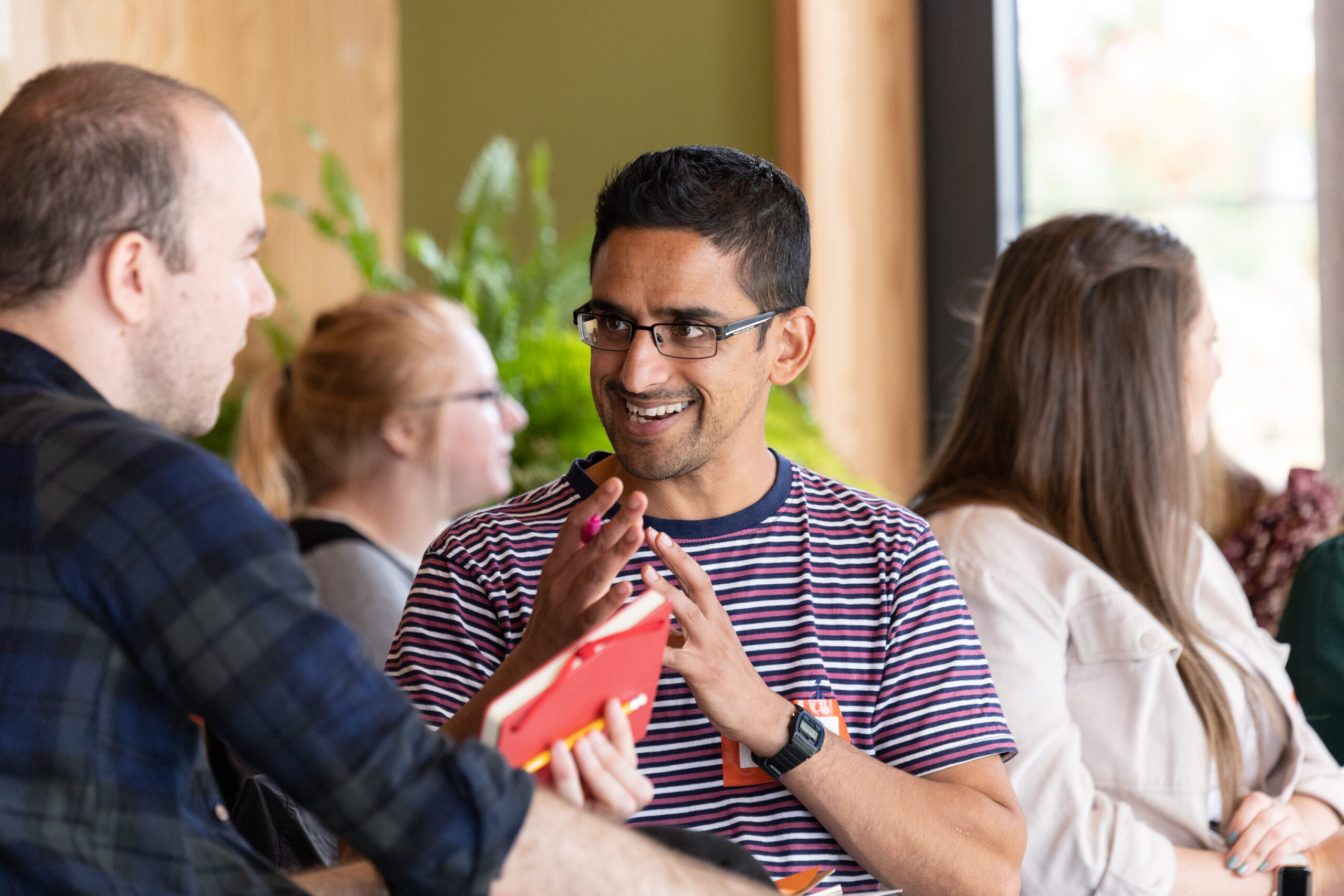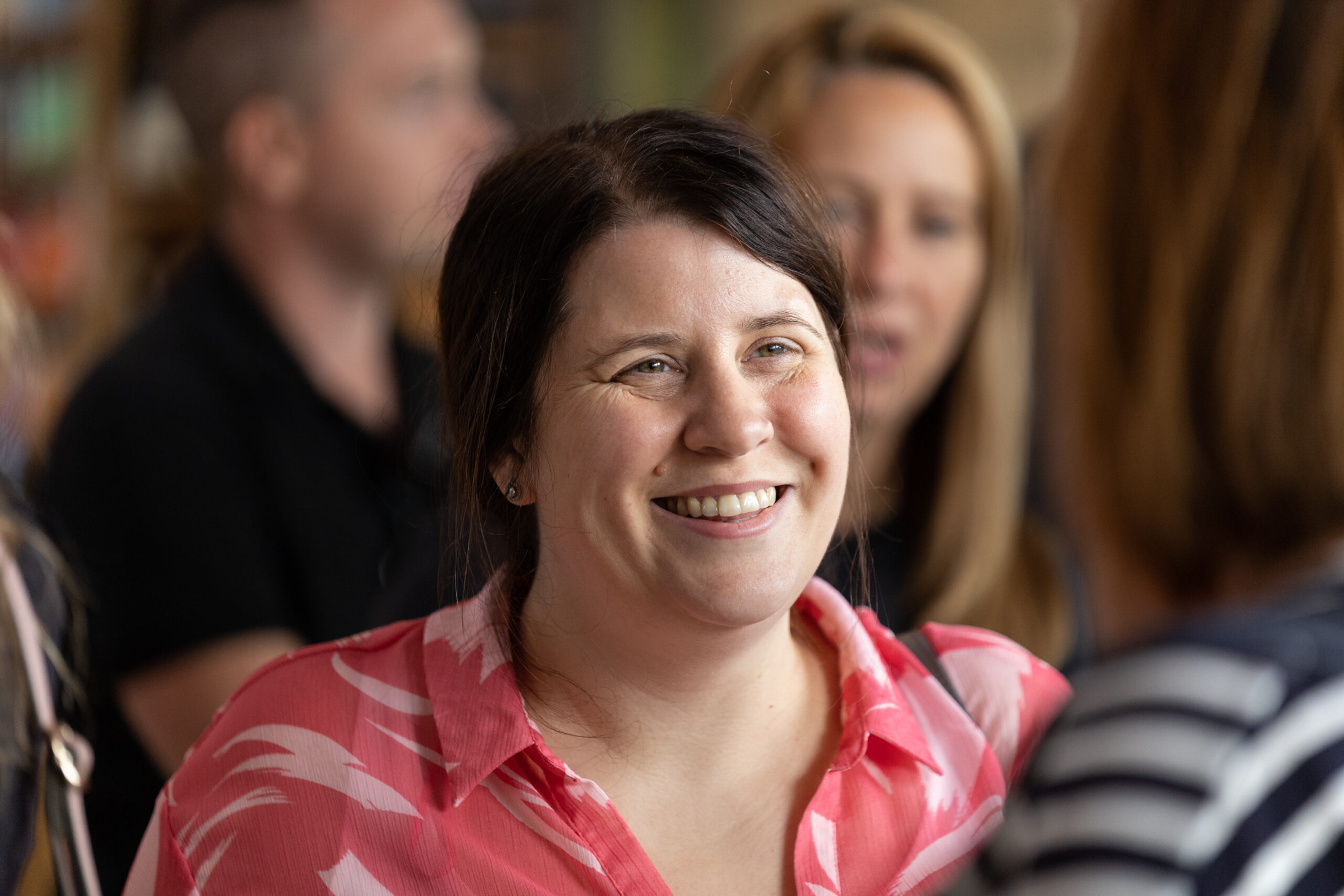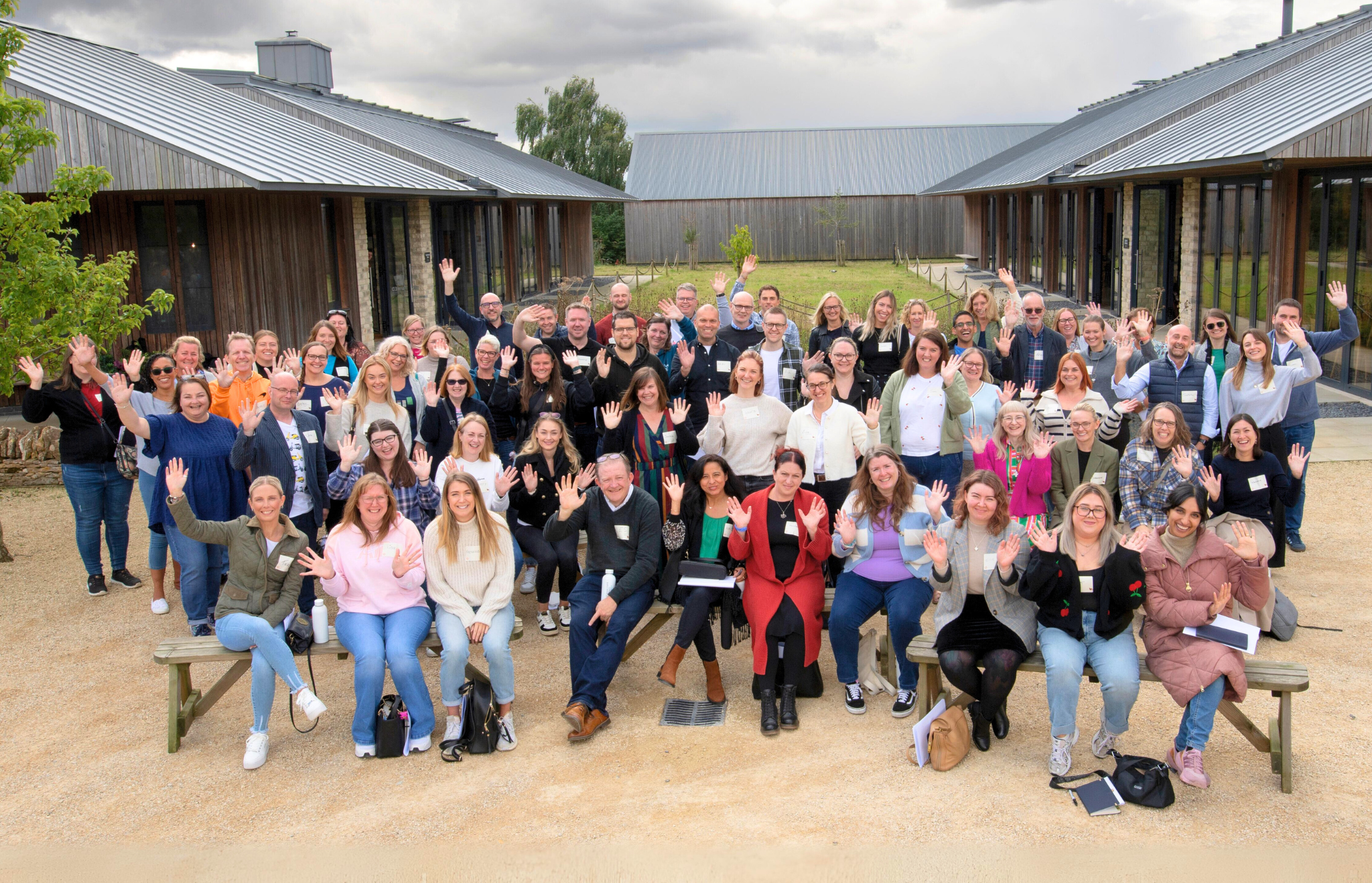
Paraplanners from all over the country gathered for the Paraplanners’ Assembly’s Big Day Out 2024 on 12 September 2024.
From its first meeting in 2013, the Paraplanners’ Assembly’s annual gathering has created space for sparking collaboration and conversation among paraplanners that is unlike any other event in the world of wealth management.
Why?
The Big Day Out is an informal gathering that offers six hours’ worth of CPD thanks to its combination of tailor-made interactive sessions led by hand-picked experts (and designed especially for the event), and group discussions facilitated by paraplanner hosts.
It makes for a supportive and encouraging space in which you can listen and learn, and share ideas, knowledge and insights. And it’s a unique environment in which you can really focus and flourish – both professionally and personally.
You’ll feel you belong at The Big Day Out because The Big Day Out belongs to you. Here’s what happened at The Big Day Out 2024.
Welcome!
Assembled paraplanners joined us in the conference barn for a welcome from Big Day Out hosts, Sam Tonks and Chris Wormwell.
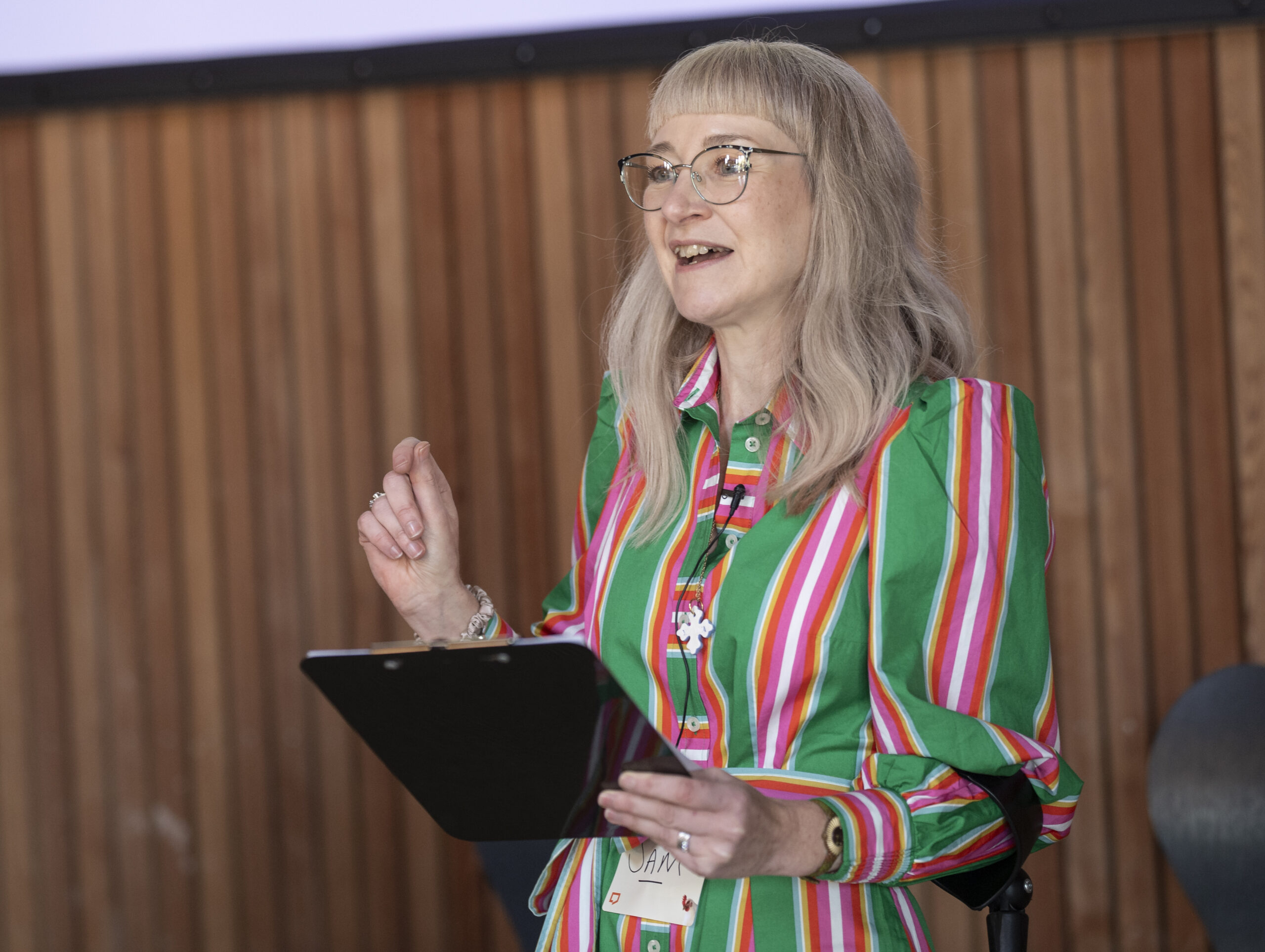
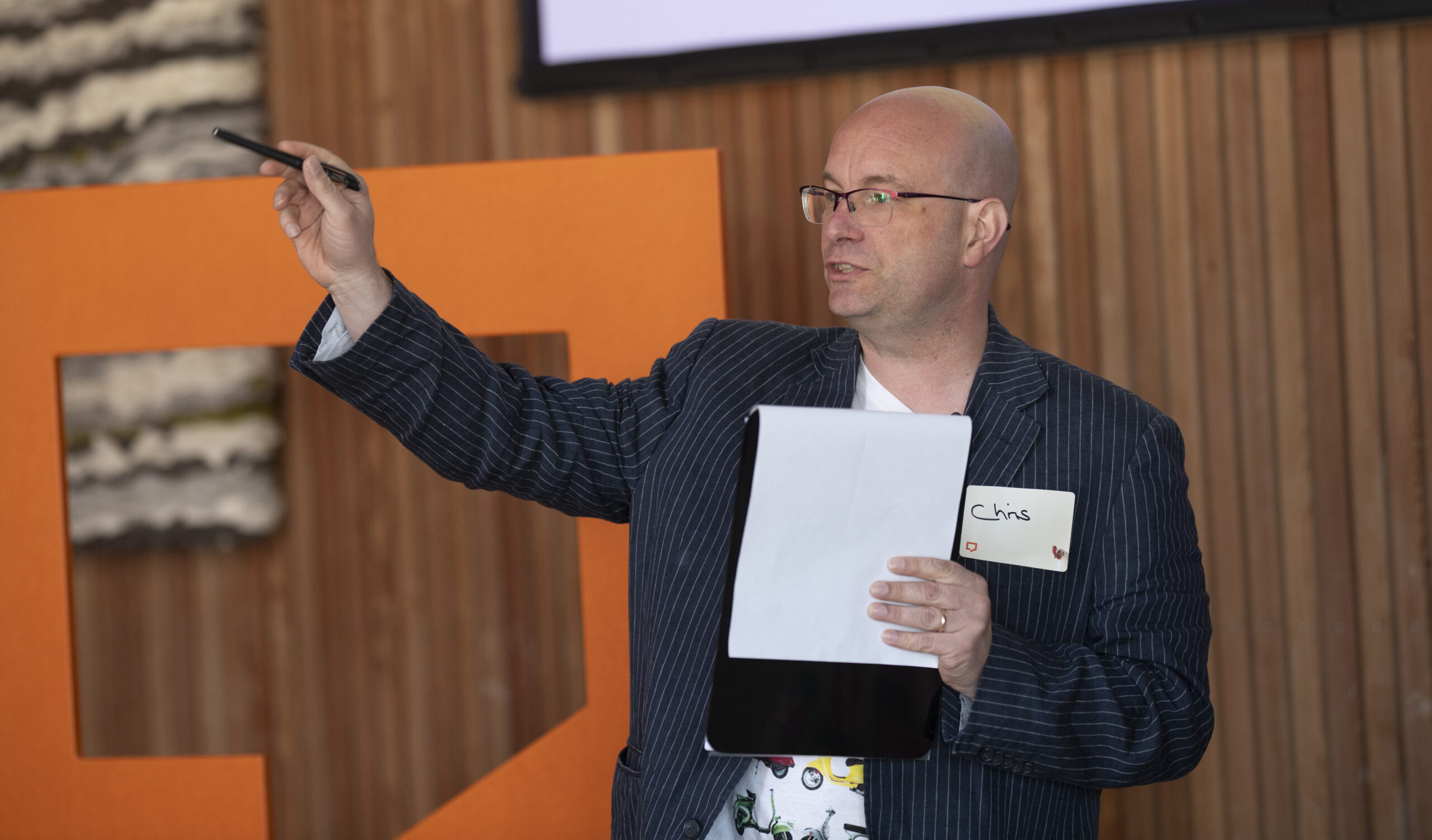
Then we got straight into…
Hone it. Own it: One hour to perfect your development plan
New for this year, and designed especially for the Paraplanners’ Assembly, we open and closed the day with two really interactive sessions led by Arch Inspire’s Rachael Hurdman.
What were they all about? How to create an actionable and practical plan to achieve your personal and professional development goals.
But this wasn’t some dry run-of-the-mill classroom-type session because IT WAS A BIG DAY OUT! So Rachael shared practical tools, techniques and insights that (1) participants could try out throughout the sessions at your Big Day Out and (2) will last participants (and people back at the office they shared them with) for years.
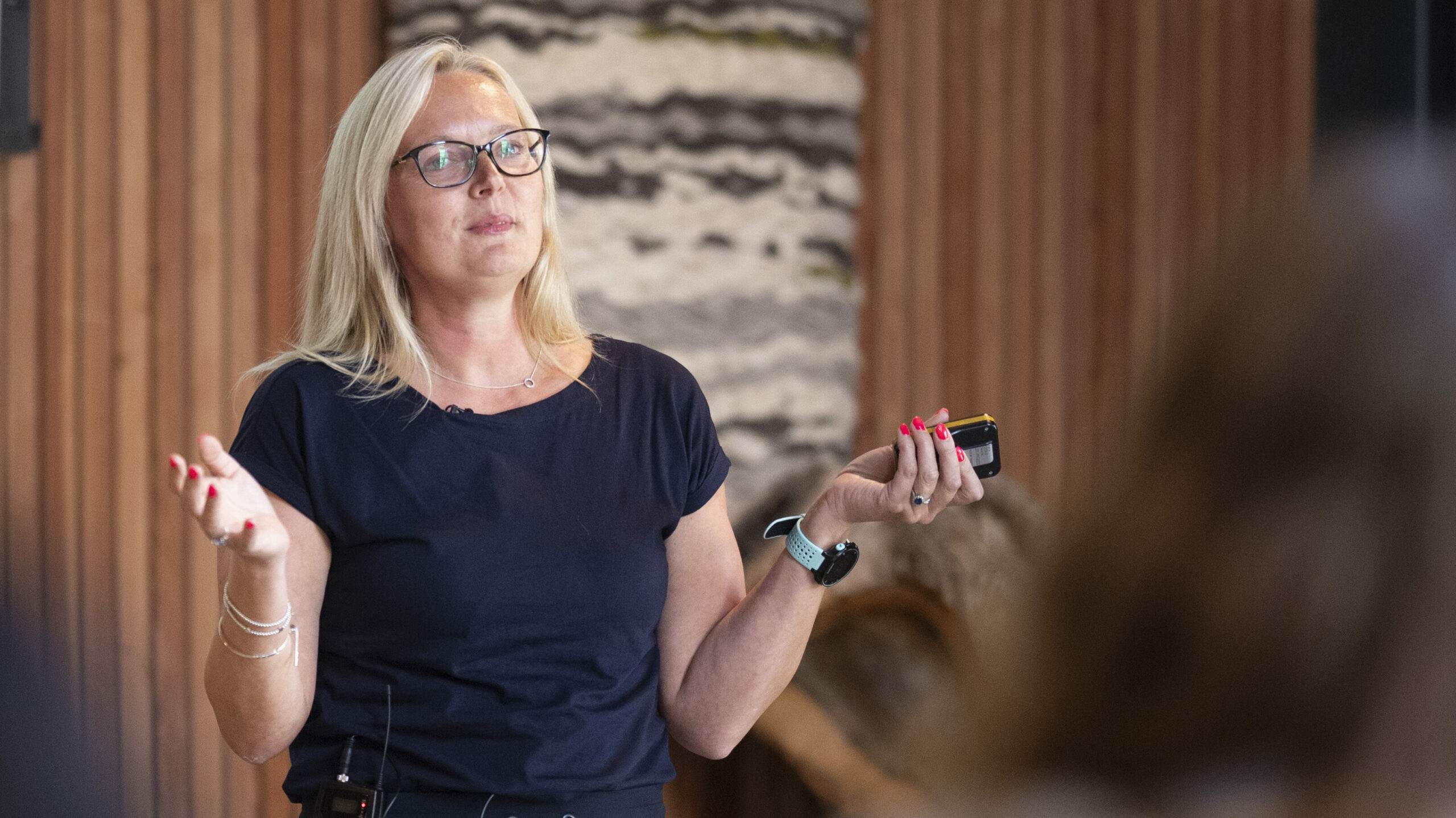
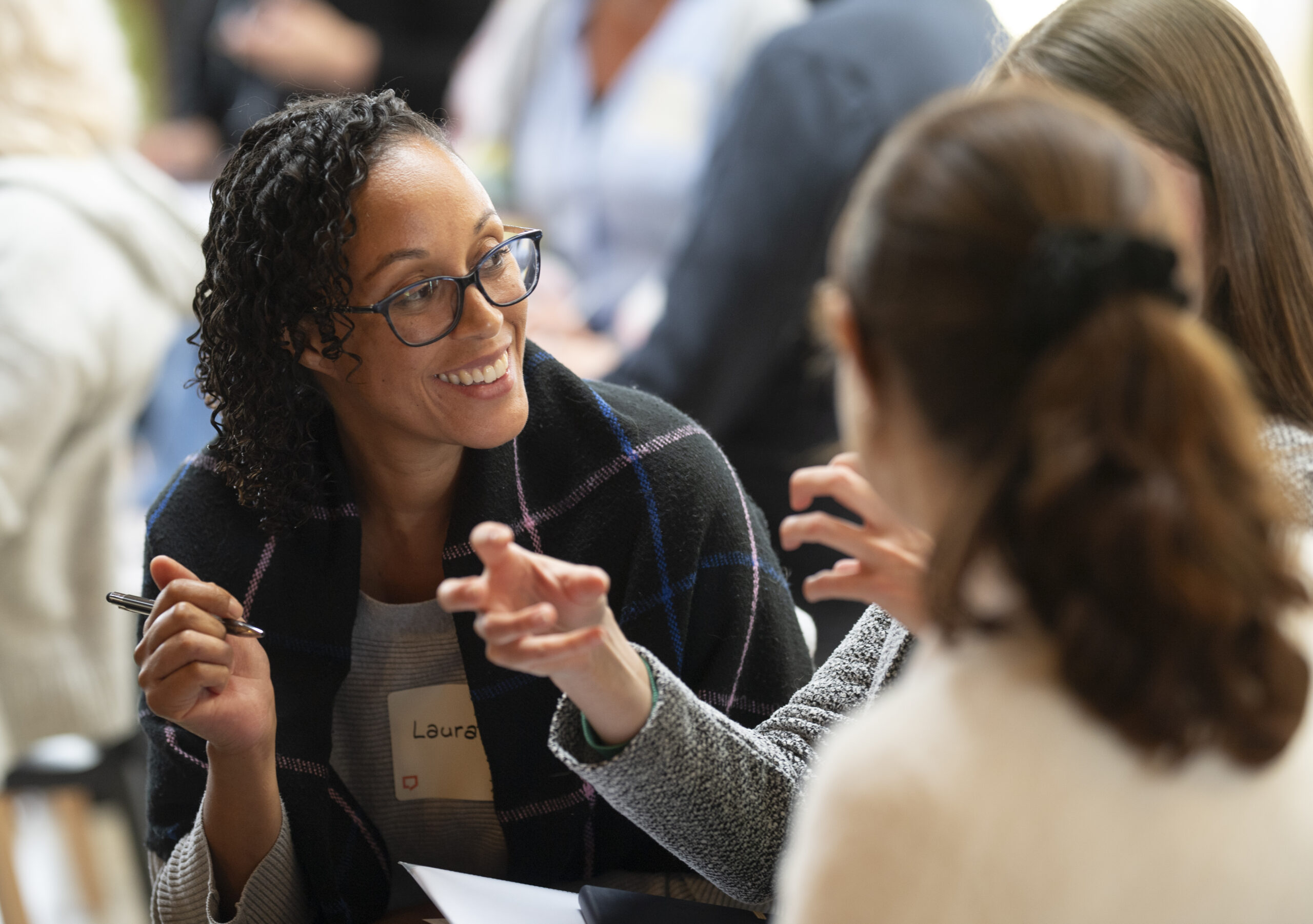
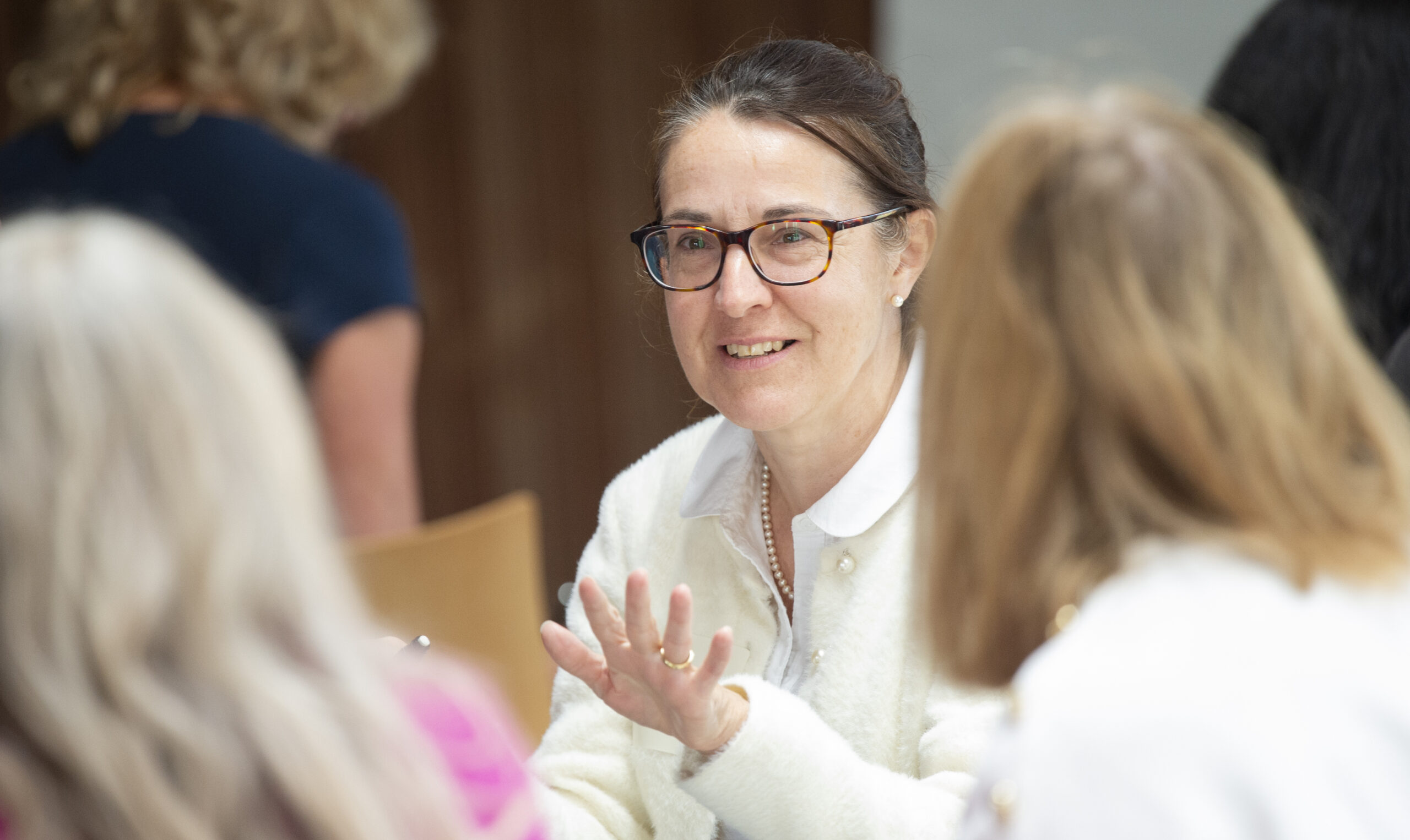
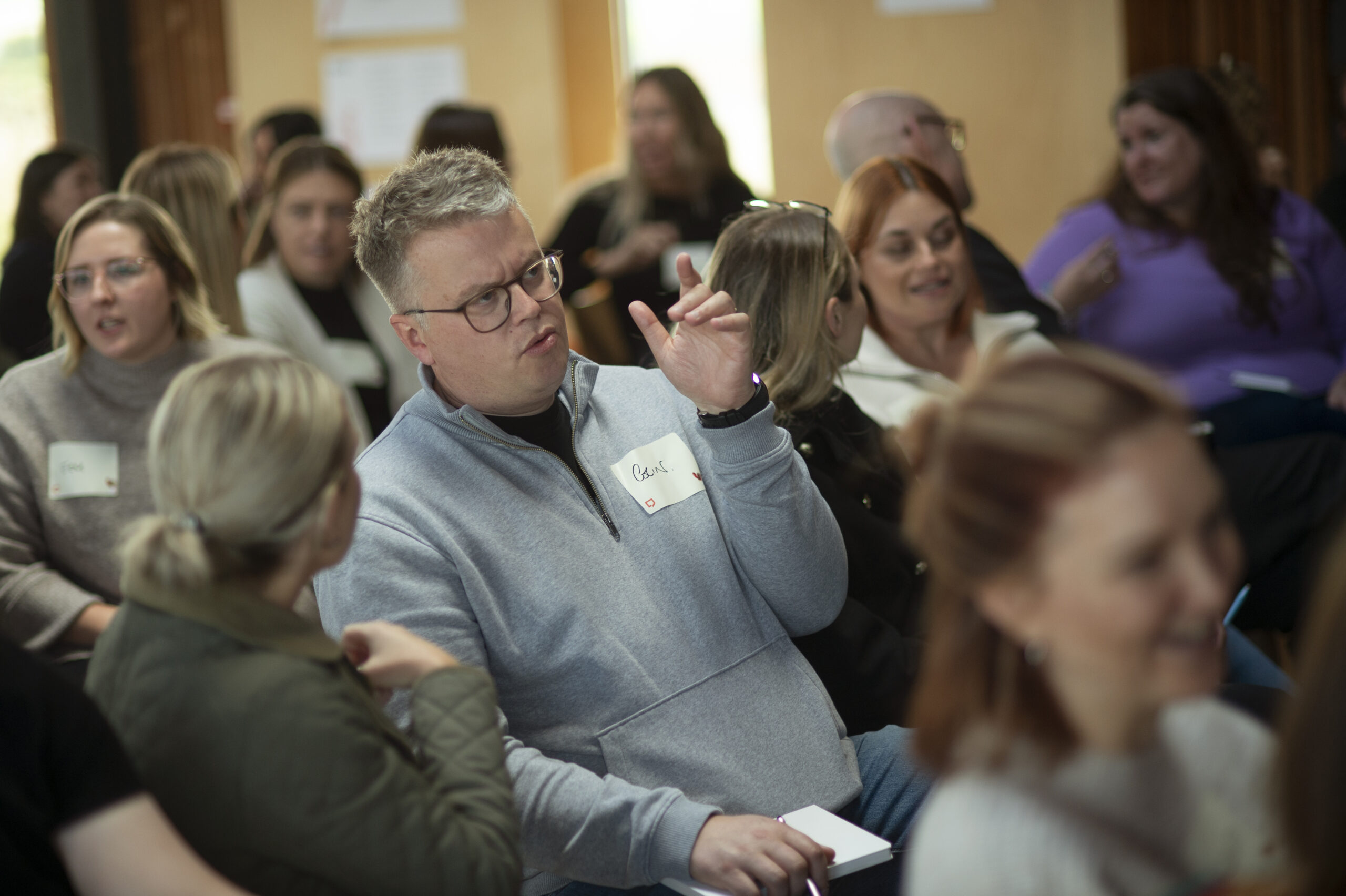
Crop Rotations
Following the opening session, the Assembly split into three groups (called Crop Rotations) to tackle three topics over three 45-minute sessions.
ROTATION A
Quiz the experts
Our technical sessions are a perennial favourite among paraplanners.
After all, it could be the one chance you get this year to fire any question you can possibly think of at experts who – we’re pretty certain – will be able to answer them. (As long as it’s a technical paraplanning question and not e.g. ‘Yes, but what’s the universe expanding into?’)
This year is no exception. Your stellar quartet of experts includes:
– Les Cameron of M&G Wealth
– Gareth Davies of Scottish Widows
– Natalie Howard of Canaccord Genuity
– Brian Radbone of Transact
So begin collecting your questions today and you’ll be all set to quiz the experts on the day.
ROTATION B
Productivity tips you live by. Apps and tools you can’t live without.
Because the Big Day Out attracts paraplanners from companies large and small, and from in-house and outsourced teams, we know that the ability to influence things such as report content and formats, and choice of software and tech tools varies widely among participants.
But one thing that won’t vary widely is the way we go about getting our own stuff done.
So that’s what this session is all about: what’s the secret to your day-to-day personal productivity? What are the tips or techniques that help you get things done? And what tools, apps or websites do you keep coming back to?
Whether you’re the world’s leading expert on the application of the Pomodoro method, Eisenhower matrix and tried all the task management apps – or are thinking ‘Pomodoro what?’, this will be a fantastic chance to discover how and why other paraplanners do what they do, the way they do.
ROTATION C
You, clients and the future of advice technology.
You already know how influential technology is in day-to-day paraplanning. But what does the future of work look like for paraplanners with the arrival of AI? In this crop rotation – designed especially for the Big Day Out – NextWealth founder and managing director, Heather Hopkins, will lead a conversation that’s all about how technology is changing advice, what innovations are coming down the line, and how they’re likely to influence the practice of paraplanning.
This is a fantastic opportunity for you and your paraplanning peers to share what you think and feel about the future – and technology’s role in it.
From due diligence to data, and research to report writing, this is a unique chance to explore how emerging technologies will influence paraplanning facilitated by one of the most influential figures in UK advicetech today
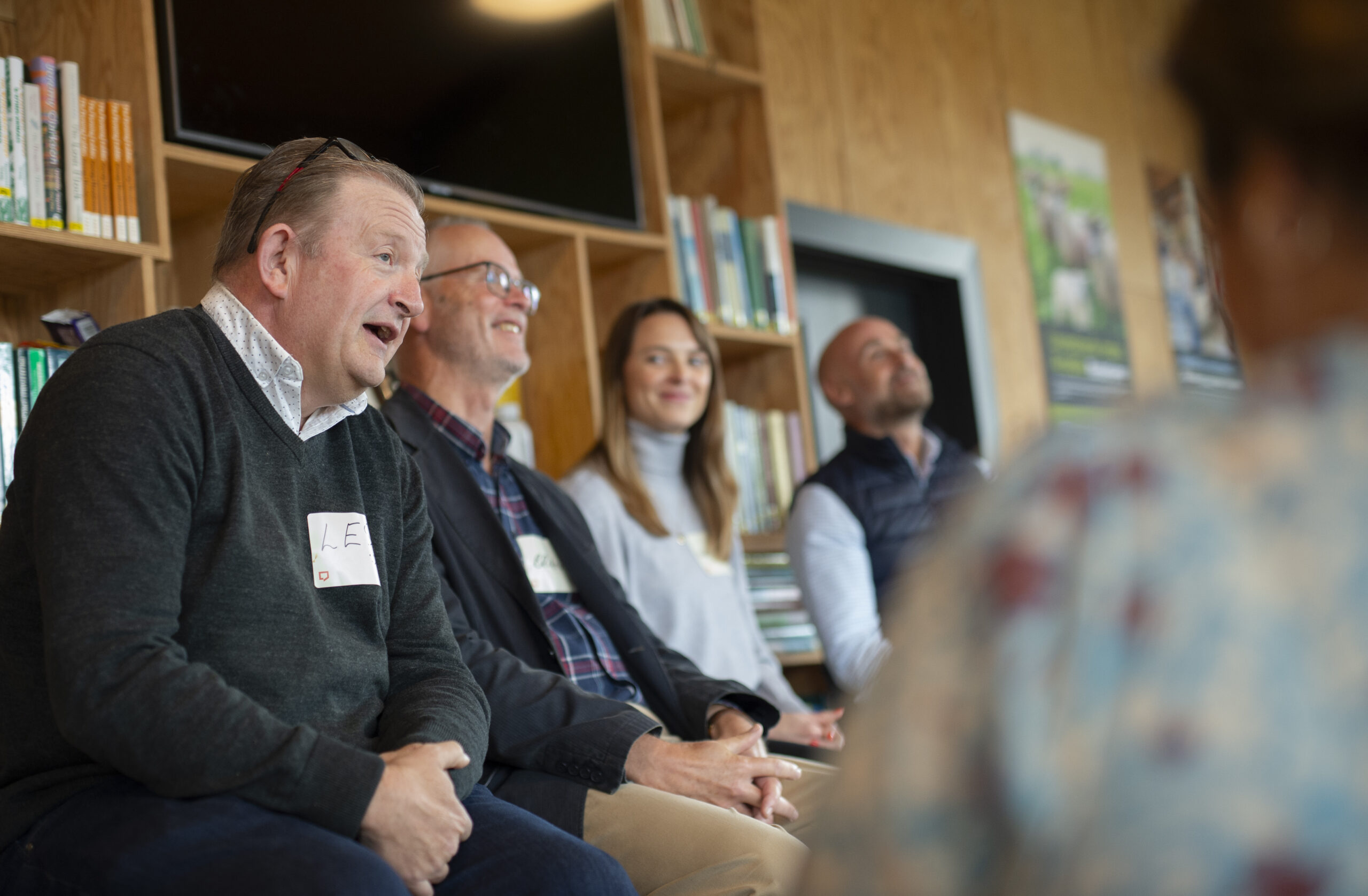
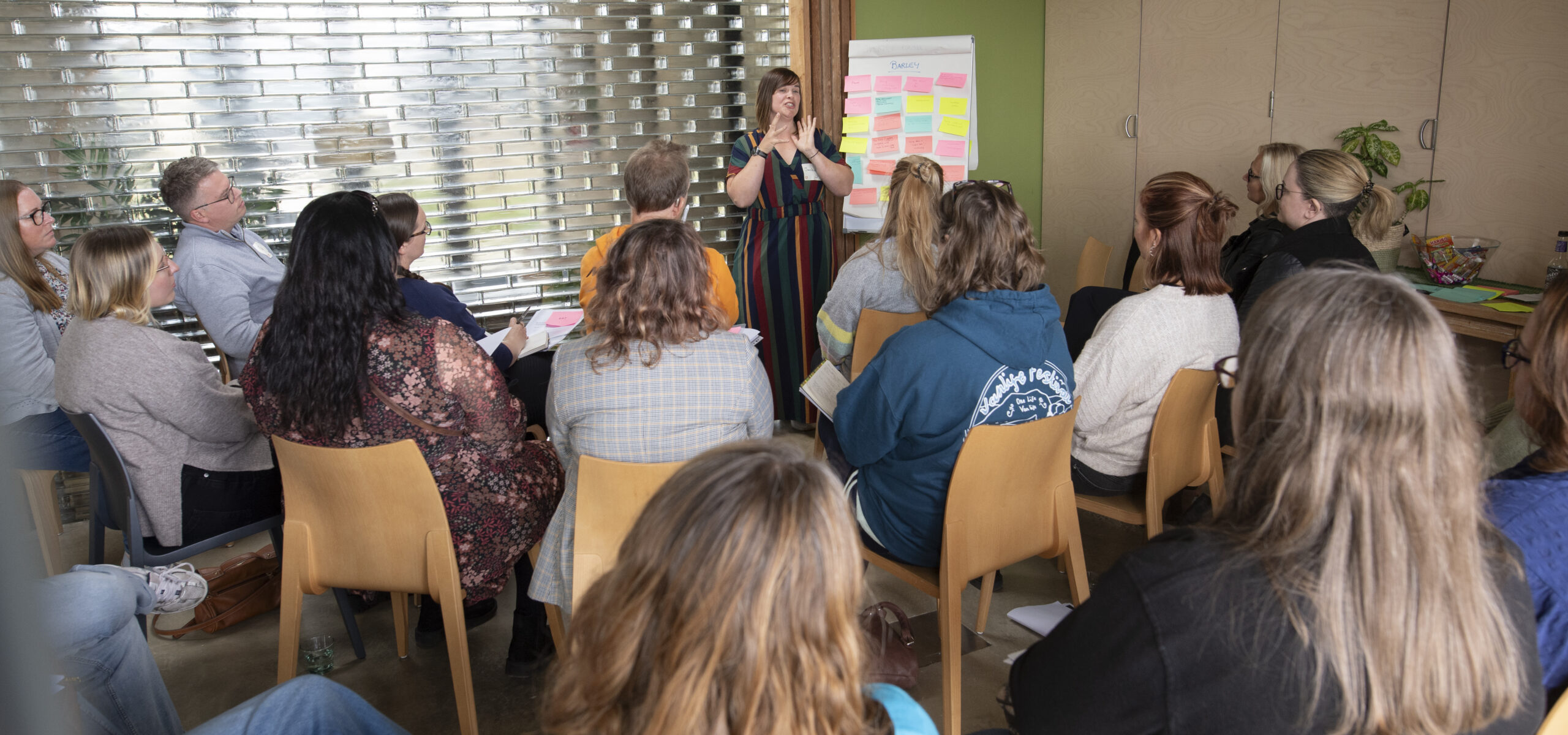
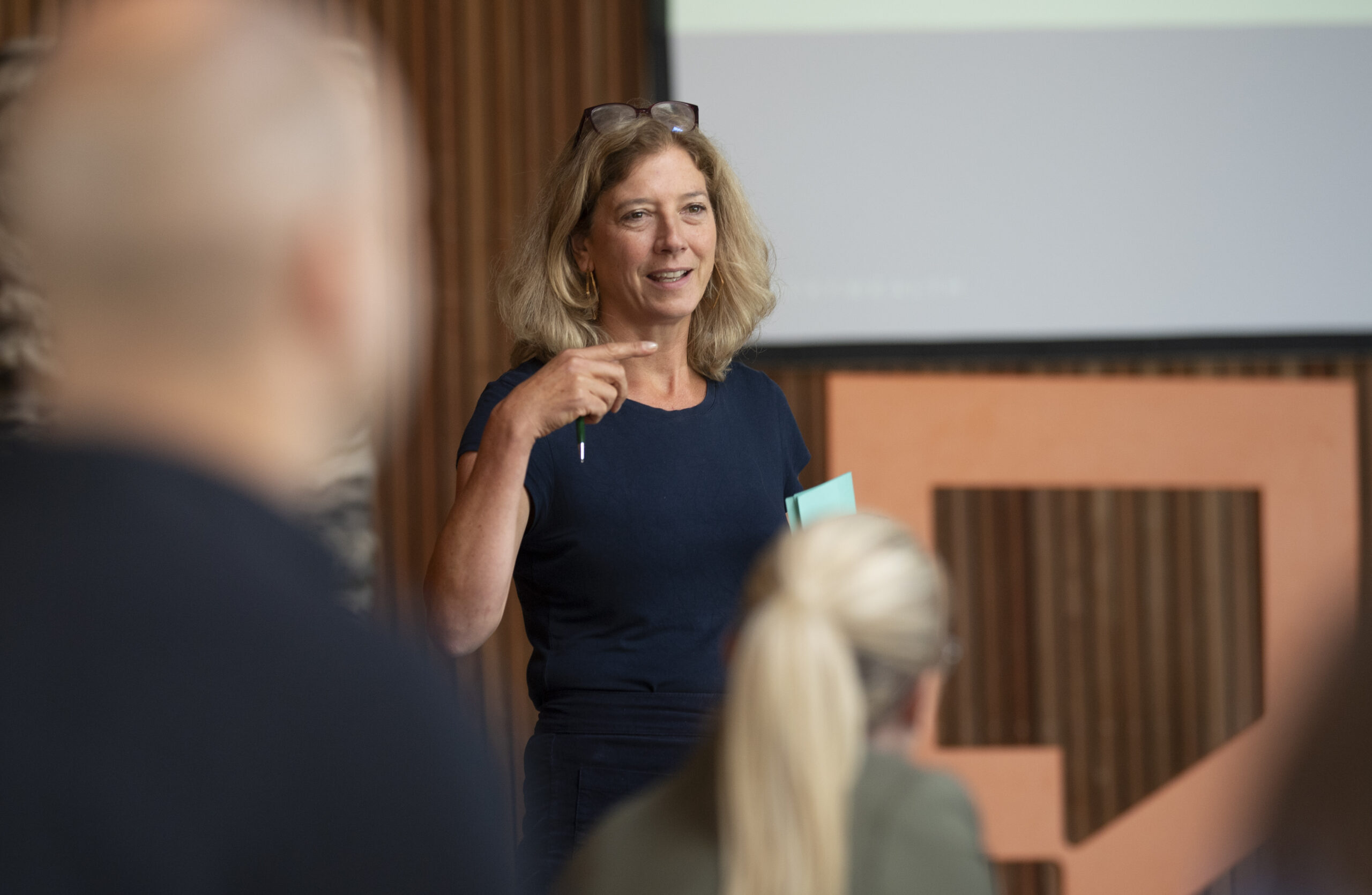
Lunch
Locally sourced and freshly prepared, we tucked into pulled pork or vegetarian chilli (or both!) along with loads of healthy salads and slaws that were grown on the farm.

Hone it. Own it: Part Two
Rachael Hurdman returned and, in this closing session, invited participants to take a couple of practical steps that will enable you to gather the loose ends of your personal action plan. It was another really interactive session where you could try out your new tools, and round off your development plan – and Big Day Out – perfectly.
And finally…
The Paraplanners’ Assembly
It was time for the session after which the Assembly is named. Just like at our first gathering in 2013, Sam and Chris will opened up the floor for you to share anything that’s on your mind.
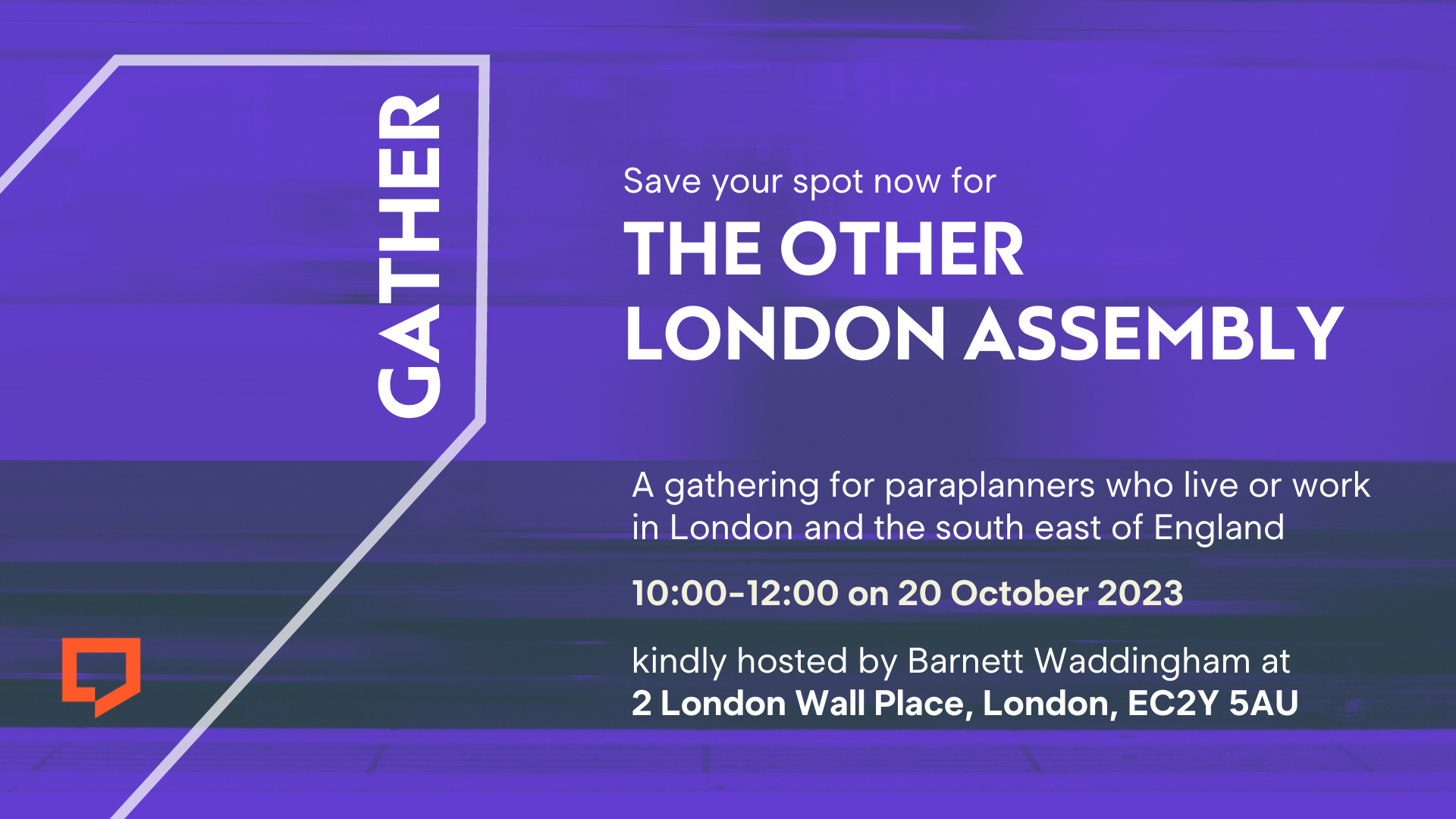
If you’re a paraplanner who lives or works in striking distance of central London, then The Other London Assembly from 10am on Friday 20 October 2023 will be right up your street.
Hosted by Dan Atkinson and Andy Schleider, this is your chance to gather with paraplanners from your neck of the woods to learn what’s going on in each other’s worlds, share ideas, and discover practical tips and illuminating insights.
Book your spot and you’ll be able to shape the agenda for the two-hour get-together but – right now – we expect paraplanners taking part to exchange ideas on report writing and, now that the consumer duty is a feature of daily life, explore how we’re demonstrating ‘fair value’ in annual reviews.
Plus, the chance to tackle any other paraplanning topic that’s on your mind when we gather at the London Wall Place office of Barnett Waddingham.
From our very first meeting in 2013, the Paraplanners’ Assembly has created gatherings – in person and online and all over the UK – that spark collaboration and conversation.
Expect the same from The Other London Assembly.
After all, Assemblies only happen because paraplanners show up. You’ll feel you belong at The Other London Assembly because The Other London Assembly belongs to you.
So how about it? Book your spot now.
There are times when we’re recording an online Assembly or bitesize video or dedicated podcast episode and we just think OMG EVERYONE IS GOING TO ABSOLUTELY LOVE THIS.
And that’s the case with this interview with consultant and founding director of About Consulting Group, Jon Dunckley.
Because this podcast is all about neurodiversity.
(Its origins lie in this comment by Planner12 posted at The Big Tent last year.)
And, as Jon (who is autistic) says very early on in the episode, neurodiversity matters to me, you and everyone.
After all, we each have a way of thinking that’s unique to us. We all occupy our place in a neurodiverse world.
But if the way we think is plotted on a spectrum, most of us would be considered ‘neurotypical’.
Yet plenty of us – at least 1 in 10 in the UK – function, learn and process information differently from the neurotypical.
Neurodifference and work
We may be neurodifferent but, despite thinking differently, we’re expected to adapt and succeed in a world that’s geared towards neurotypical people.
And that’s why we thought Planner12’s question – and the thread that their comment sparked – was such a great starting point to consider neurodiversity and its consequences personally and professionally whether we’re neurodivergent or neurotypical.
Because even if we’re not neurodifferent ourselves, people we work with will be. Either way, what do we need to consider about day-to-day working life so we each get the chance to thrive, contribute and gain fulfilment from work?
What do we mean by neurodifferent? What conditions are considered neurodifferent? If you’re neurodifferent, do you mention it to your employer? Do you need a diagnosis? What’s your approach to studying and sitting exams? How should you adapt your leadership style for a range of neurodifferent conditions? And how does your condition influence the way you manage your team?
Invaluable insights and practical tips
In just under an hour, host Richard Allum and Jon explore just about everything you could possibly want to cover.
Expect talk of autism, ADHD, dyspraxia, dyscalculia, dyslexia and dysgraphia. Learn about TIC syndrome, the ‘Pygmalion effect’, why people with ‘spiky profiles’ are good for business. Plus why job adverts should (a) encourage applicants with spiky profiles and (b) be really clear about what a job will actually involve.
And there’s so much more.
In fact, this is an area we’re going to explore more – and not leave it too long before we do. So if you think of anything that the Assembly could explore once you’ve listened please get in touch and tell us what you think.
Now, tuck in to this latest episode. We think you’re going to love it.
Listen to the Assembly
A few of links mentioned by Jon during the episode
British Dyslexia Association: Dyslexia-friendly style guide
The Neurodiverse Workplace by Victoria Honeybourne
Think Human Business Writing course
BTS podcast: Neurodiversity and studying for regulated exams
PFS Power: Working with vulnerable clients
Cornell note-taking system (YouTube video)
Online Assembly: Design principles for reports
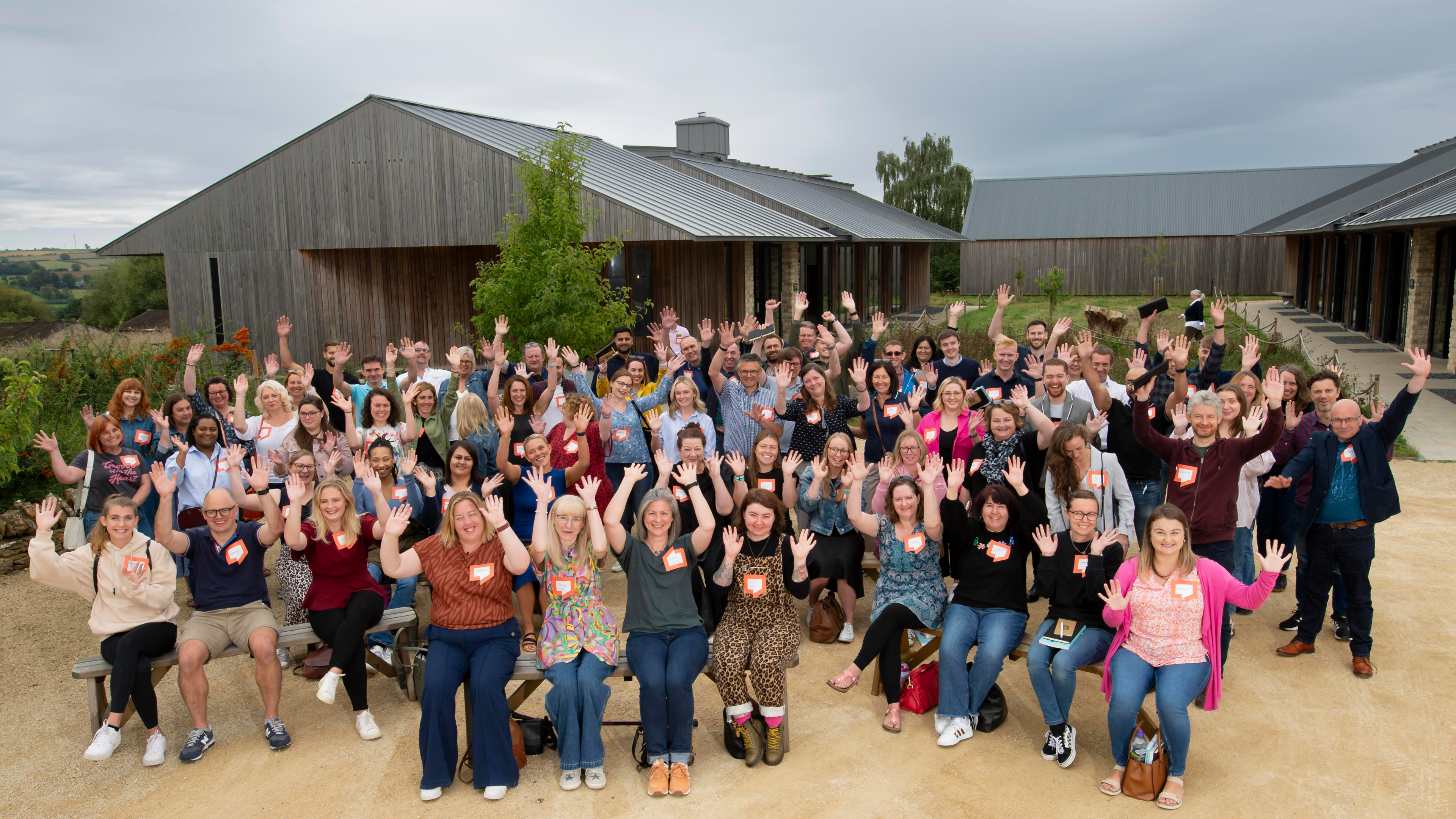
Paraplanners from all over the country gathered for The Big Day Out 2023 on 14th September 2023.
For the second successive year, our destination was the fantastic FarmED – right in the heart of the Cotswold countryside.
(Trust us, it’s lovely.)
This year, The Big Day Out was split into two halves:
1st half: All about paraplanning today
2nd half: All about paraplanning tomorrow
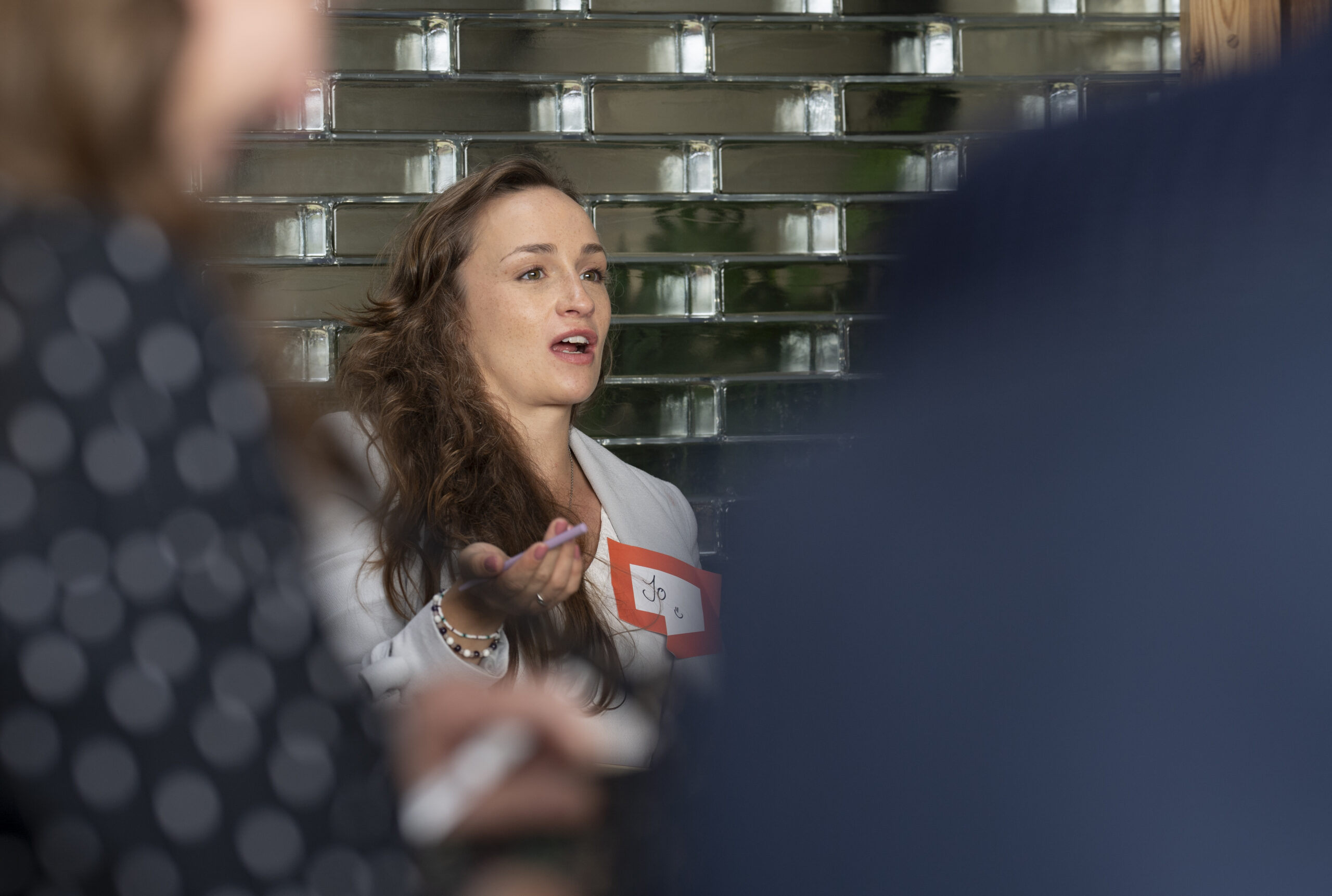
Three groups
Following The Big Welcome, we split the Assembly into three groups – Barley, Oats, and Wheat.
Each group had paraplanning hosts. Hosts volunteered to make sure you were where you needed to be when you needed to be there and to help facilitate conversations.
(The Big Day Out wouldn’t have been possible without our volunteers, so please gave a big hand 👏 to this year’s hosts: Kez Condy, Becky Jones, Jackie Manning, Sian Davies Cole, Pippa Oldfield, Jo Parkes, and Colin Stewart.)
First half: Paraplanning today – Crop Rotations
Each group spent 45 minutes in each of the following three sessions.
Technical top tips
Expert: Les Cameron, Head of Technical, M&G Wealth
This was a chance to quiz a popular Assembly regular in person with those burning technical questions that you’ve always wanted someone to answer.
Suitability reports: a fair value assessment
Leader: Caroline Stuart, Founder of Sparrow Paraplanning
Caroline invited groups to consider whether suitability reports were still fit for purpose and they’ve for a Consumer Duty world.
Were our planning assumptions still fit for purpose?
Leader: Dan Atkinson, Head of Technical, Paradigm Norton
Is it time to re-assess your planning assumptions? Could you really rely on what had happened in the past to plan for the future? This was a chance for participants to test the assumptions that apply to the ‘planning’ part of a paraplanners job title. To help, we were joined by three experts: Thomas Hogg of Timeline, Parmenion’s Jasper Thornton-Boelman and Jon Palin from Barnett Waddingham.
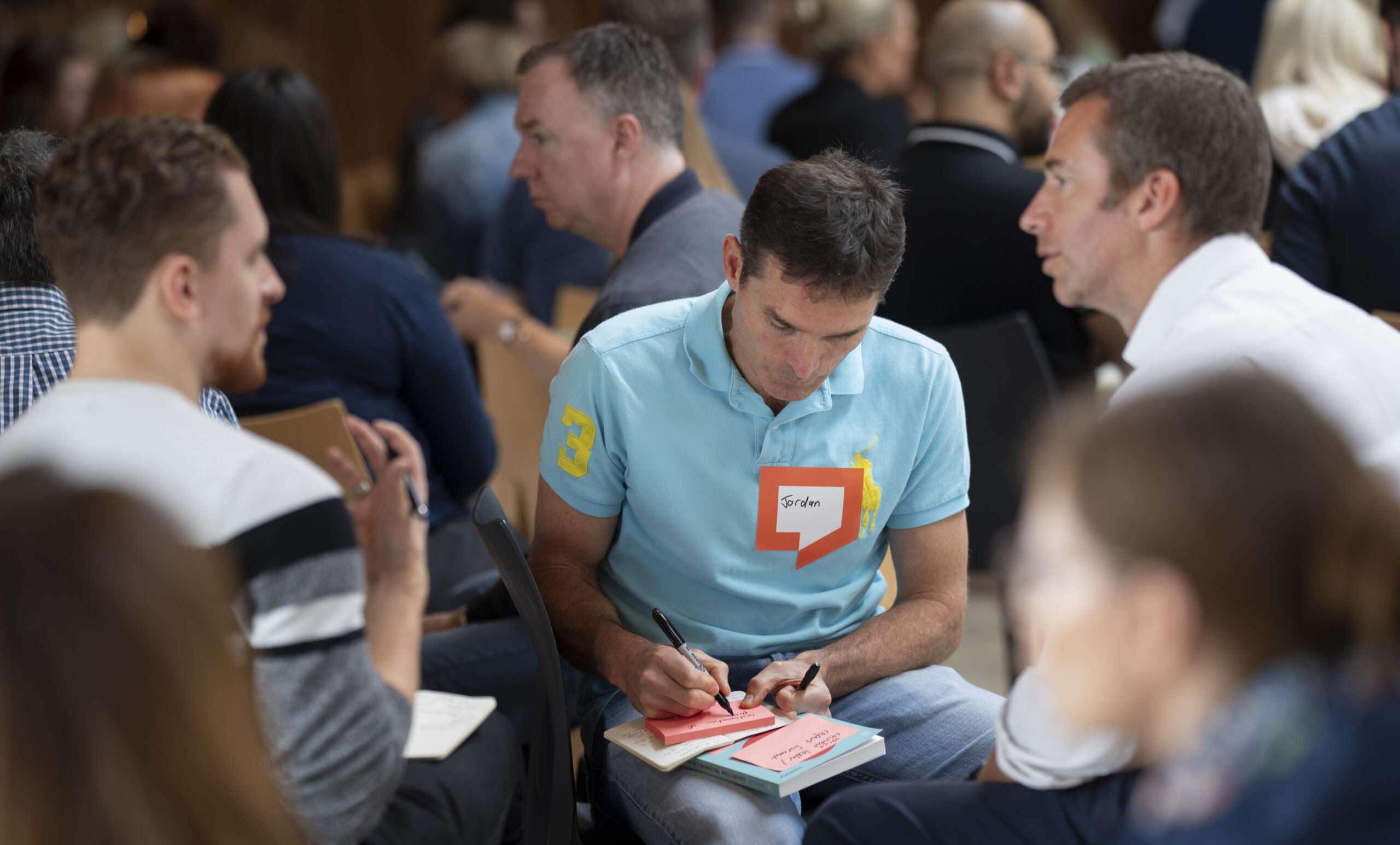
Lunchtime drop-in: Outsourced Paraplanners Banter + Chat x Paraplanners’ Assembly
Lunchtime drop-in: Outsourced Paraplanners Banter + Chat x Paraplanners’ Assembly
Christina Georgiou and Andy Schleider hosted a drop in for participants who are starting out as an outsourced paraplanner, thinking about it, or already are. The session was an IRL version of the ‘Outsourced Paraplanners banter + chat group’ hosted by Andy on WhatsApp.
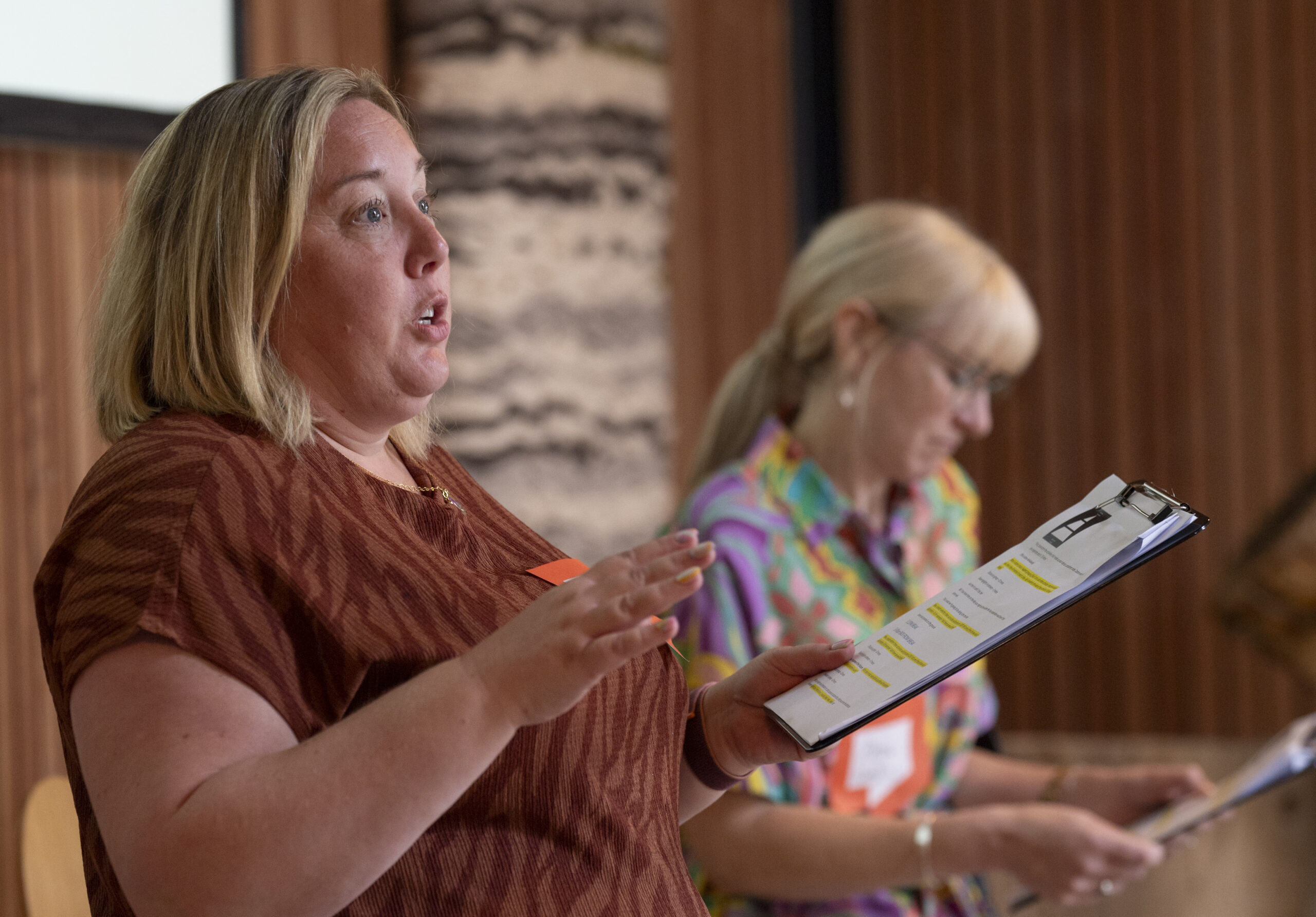
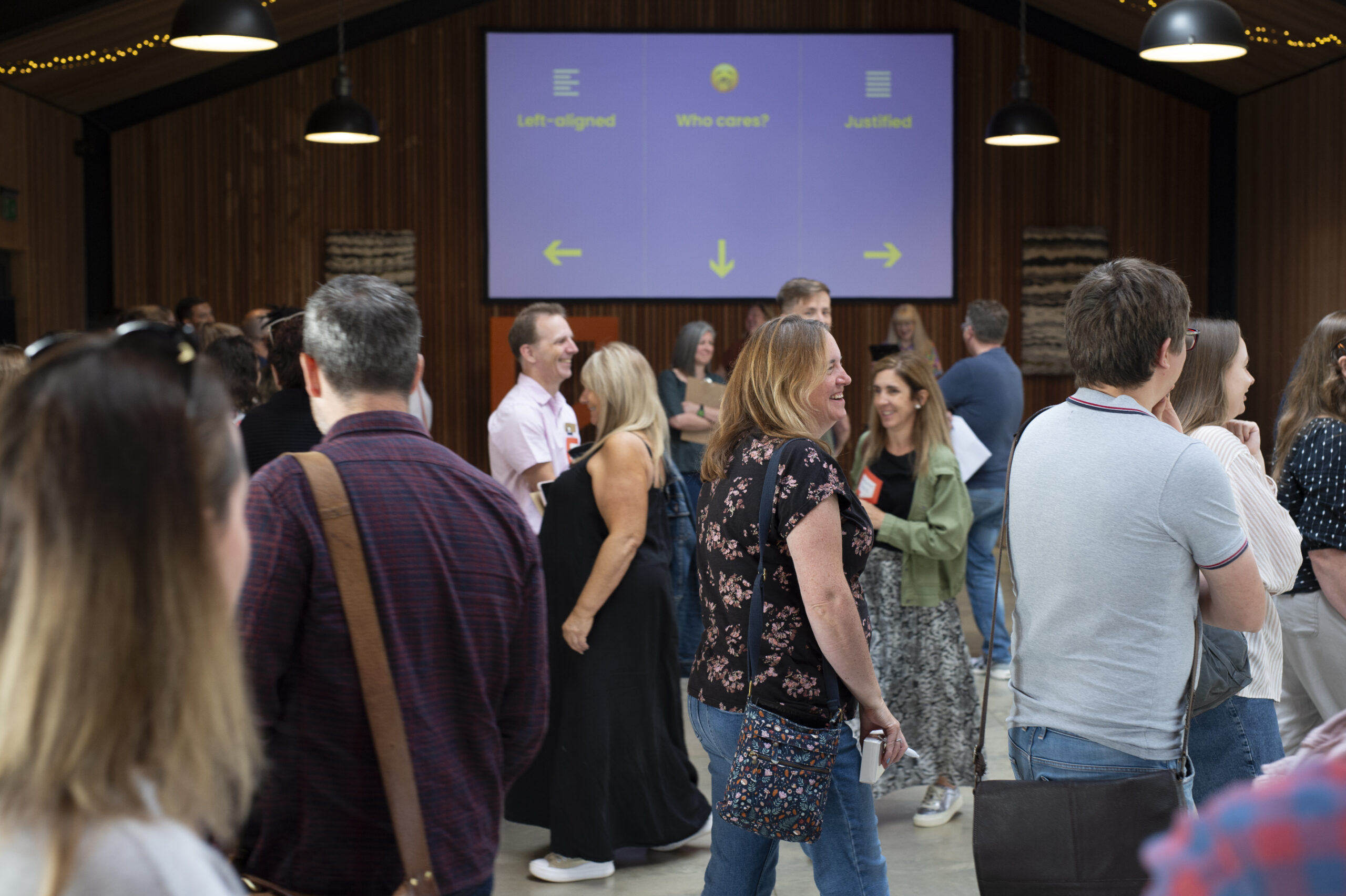
The Afternoon: Paraplanning tomorrow
After lunch, we got right back to the roots of the Paraplanners’ Assembly.
Back in 2013, our first gathering proved that when paraplanners get together to learn, fix and share, we’re able to tackle the biggest issues.
A decade ago, we wanted the financial planning world to recognise paraplanning as a choice of professional career. (And just look at us now!)
Today, the big questions seem to revolve around the future of paraplanning itself and our role in it.
What does artificial intelligence and automation mean for paraplanning and for us? Are remote working and hybrid teams really here to stay? What skills and knowledge are paraplanners going to need for a fulfilling career from now on?
Learn, fix and share
When we began to think about how to tackle these questions, it crossed our minds to invite a keynote speaker to put the world to rights for us.
But we soon realized that that speaker didn’t exist.
Because the future of work was not just about technology. It wasn’t just about personal development and technical knowledge. It wasn’t just about teams and leadership. It wasn’t just about the future of business.
It was too big a job for one person. But a bunch of people? Perhaps even an assembly?
And so we decided that the best people to consider the future of paraplanning were…paraplanners!
Let’s get started
Assembly hosts, Sam Tonks and Sarah Lees, kicked off the afternoon’s session.
We worked with foresight and innovation expert, Eleanor Winton, to help us design three very interactive sessions.
Eleanor recorded two video contributions that we showed to spark your thinking.
But the future of paraplanning? That conversation was up to us.
We knew from the surveys you completed that this kind of thing had been on your minds for a while. And we thought the Assembly was the perfect space for paraplanners to explore it. But you only got out what you were willing to put in, so you were ready to share your thoughts!
We were sure you were going to really enjoy it. We were sure you were going to feel good about having the chance to talk about the future. And we were certain it would be the start of a conversation that – thanks to your participation – our Assembly was uniquely placed to encourage among colleagues across the world of financial planning.
(And, besides, we arranged ice-cream in the break to fuel conversations!)
If you were there, we hope you enjoyed it. If you weren’t, there’s always next year!



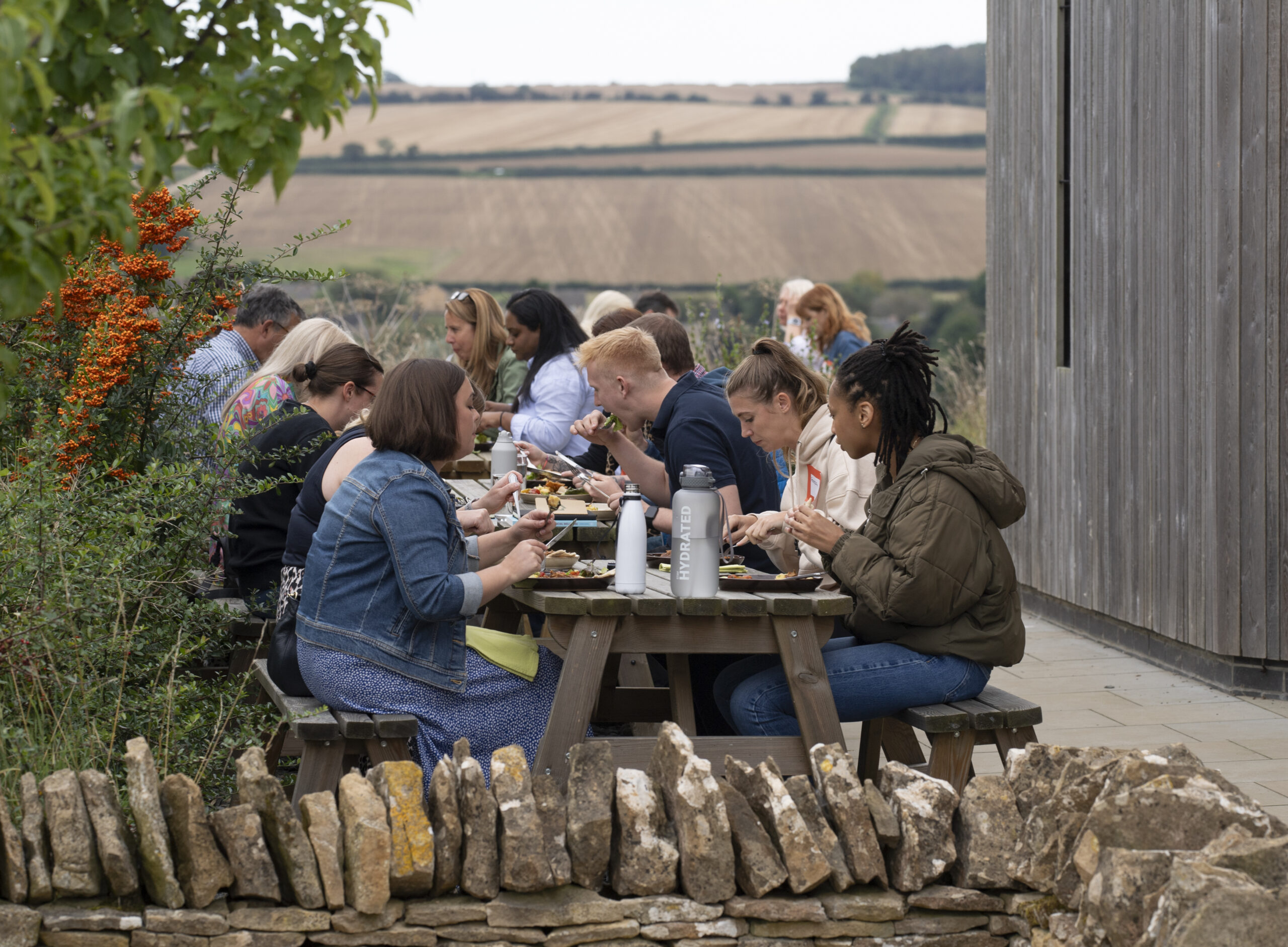
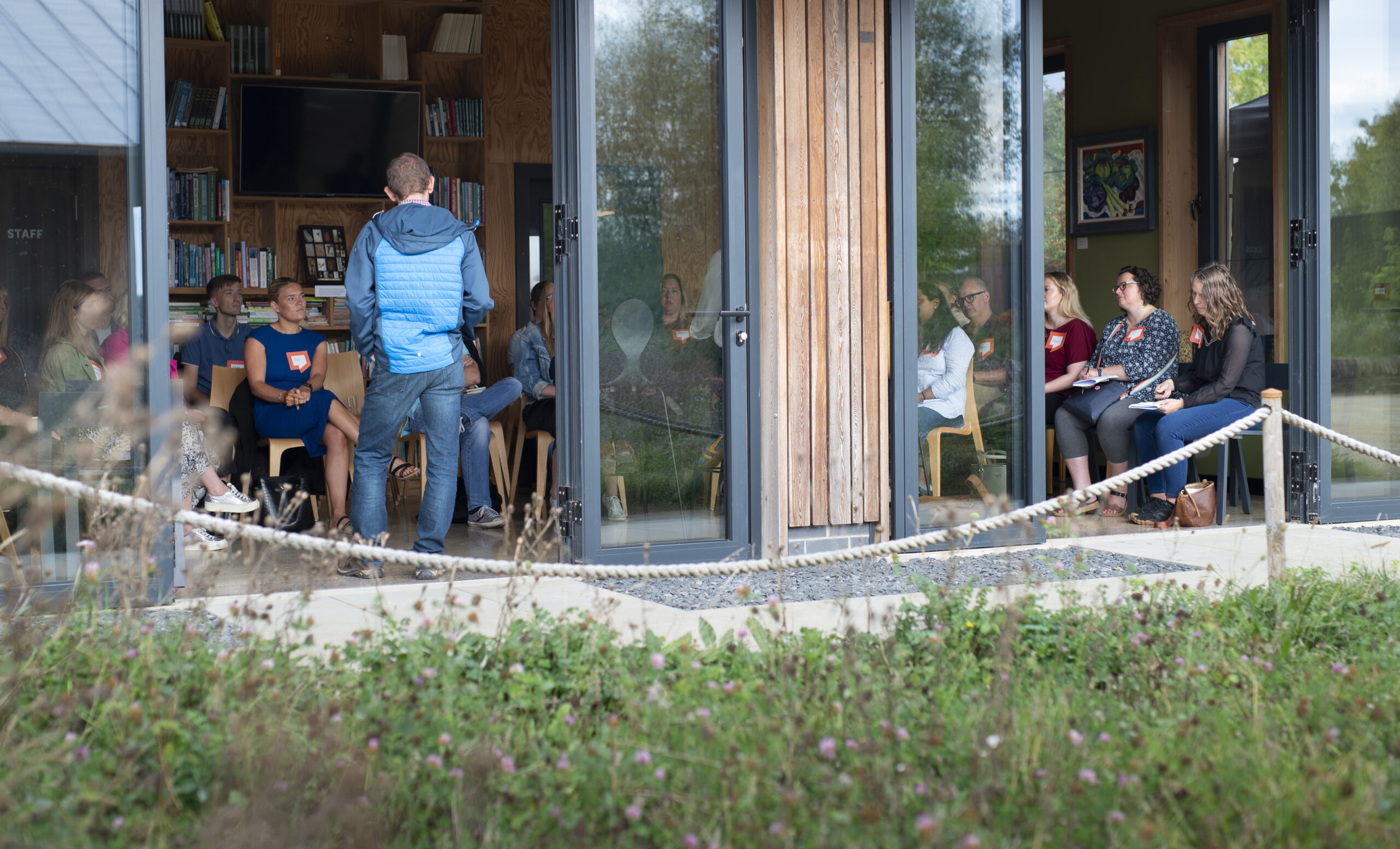

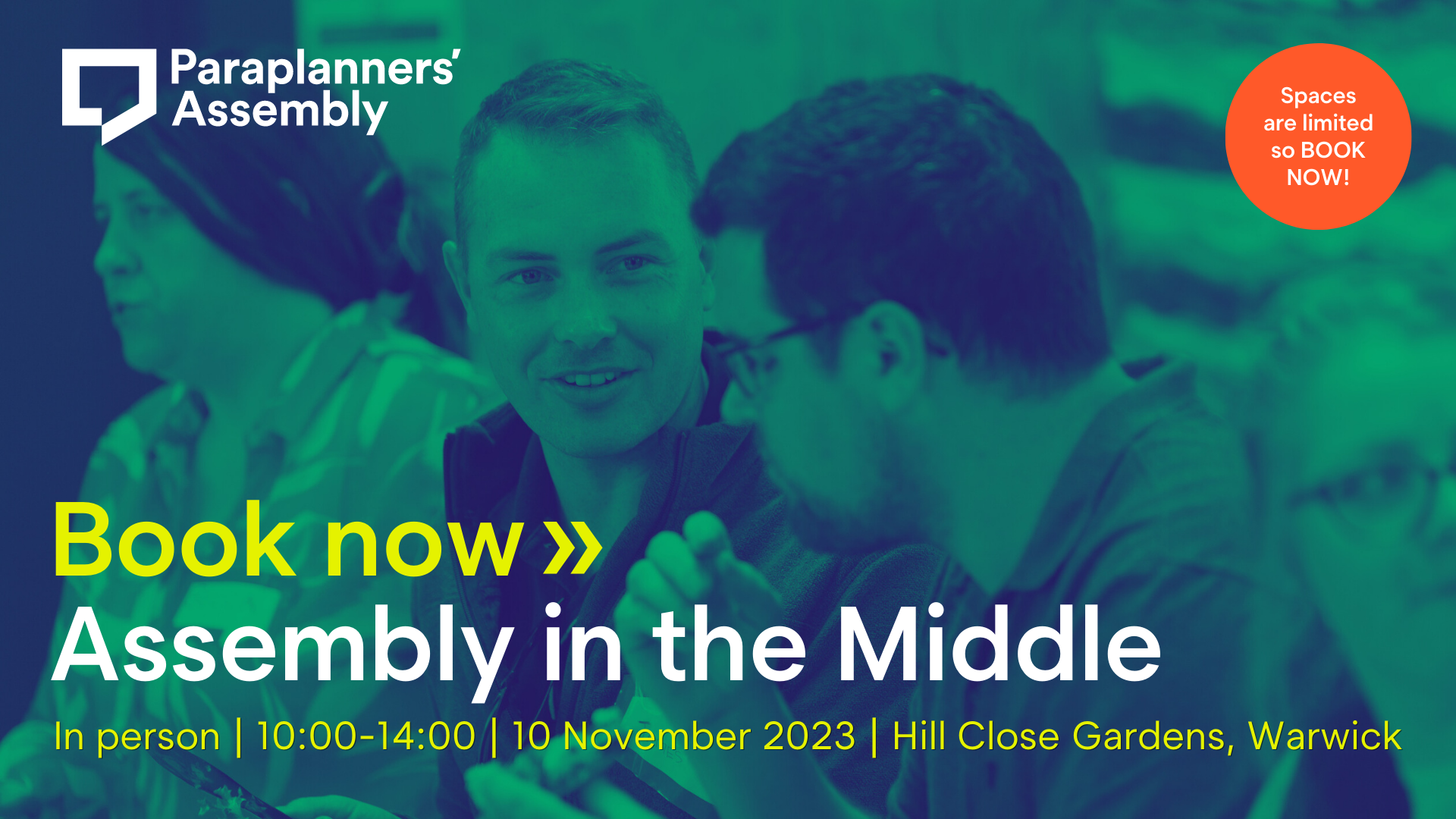
More than four years since it last gathered in person, Assembly in the Middle is back!
So if you’re a paraplanner who lives or works in the midlands of England, why not join organisers Caroline Stuart and Sam Tonks for an informal gathering at Hill Close Gardens in Warwick on 10 November 2023?
Assembly in the Middle will begin at 10am and finish at 2pm. But what happens in between is entirely up to you because, once you’ve booked your spot, we’ll invite you to submit ideas about what you’d like to learn, fix or share with other paraplanners on the day.
Why should I take part?
Because it’s part of the Paraplanners’ Assembly movement, Assembly in the Middle offers a supportive and encouraging space in which you can listen and learn, and share ideas, knowledge and insights.
And whether you’re in-house or outsourced, it’s a great way to meet other paraplanners from your neck of the woods – especially welcome when so many of us work from home these days.
It’s somewhere you can really focus and flourish – both professionally and personally.
Don’t forget to bring your lunch.
We’ll have coffee and tea and biscuits available throughout the day (plus chocolates, of course) but make sure you bring your own lunch or you’ll go hungry at lunchtime.
And finally…
You’ll feel you belong at an Assembly in the Middle because the Assembly in the Middle belongs to you.
Want to take part? Then tap ‘Book now’.
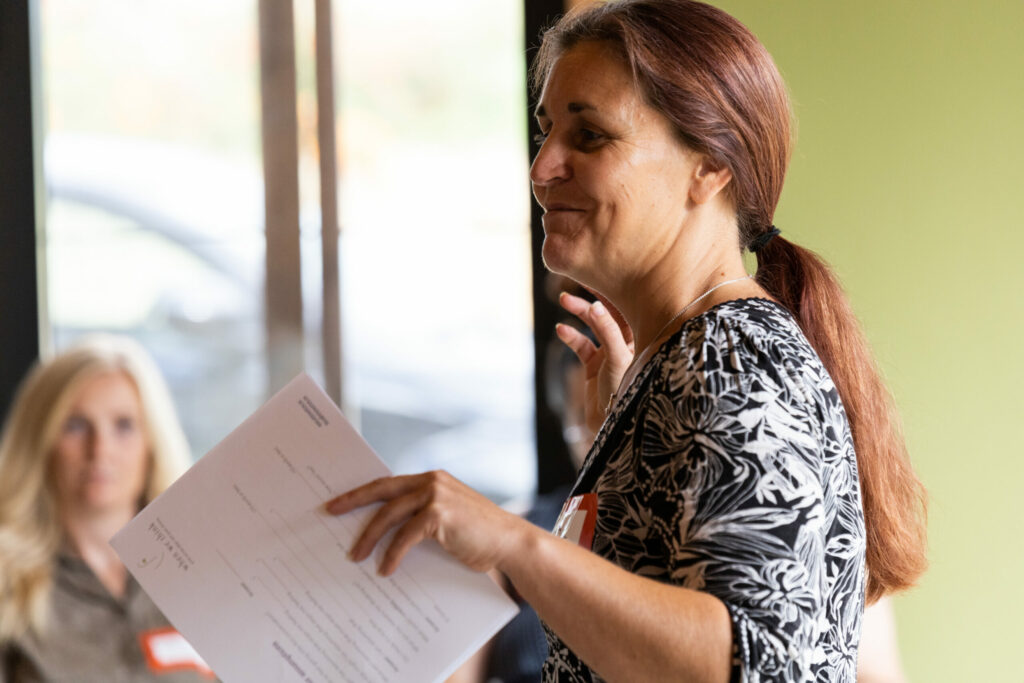
With a background that’s rich in paraplanning experience, Becca Timmins (pictured above at the Big Day Out 2022) is ideally placed to lead a session on personal development power-ups for paraplanners. But what’s in it for paraplanners – and the financial planning practices they work for?
What’s the one thing Becca Timmins wished she’d mastered when she started out as a paraplanner in 2003?
How to give feedback.
“I’ve been in an operations role since 2010, but was paraplanning for quite a long time before that, and I would have massively benefited from thinking about how to give feedback.”
“I’m not thinking about the kind of feedback you give to a team member as a manager – or vice versa – but the ‘the-information-you-gave-me-on-this-file-is-crap-and-this-is-why-I-need-it’ kind of feedback you needed to share with advisers. I just didn’t have those skills.”
These days, the coach and facilitator – and operations director of financial planning practice, Emery Little – recognises that the exchange of feedback relies on a vital quality that she would have loved to have been given techniques to practice earlier in her career too: “I wasn’t taught to listen. To REALLY listen. And that’s a skill that is massively valuable for giving and receiving feedback.”
“Take the crap file example. If I’m going to a planner and saying ‘this is a problem, the file isn’t good enough’ there’s a danger that all they hear is ‘there’s a compliance problem’ and the quality of the conversation is just doomed.”
“But if you can frame and share feedback constructively, and then sit back and really listen to what a planner says, more often than not you realise that you’re both trying to achieve very similar outcomes for clients but are just approaching it in different ways.”
“Paying attention to what people are actually saying and considering how to give feedback – both contribute massively to fostering understanding that results in healthier and happier working relationships.”
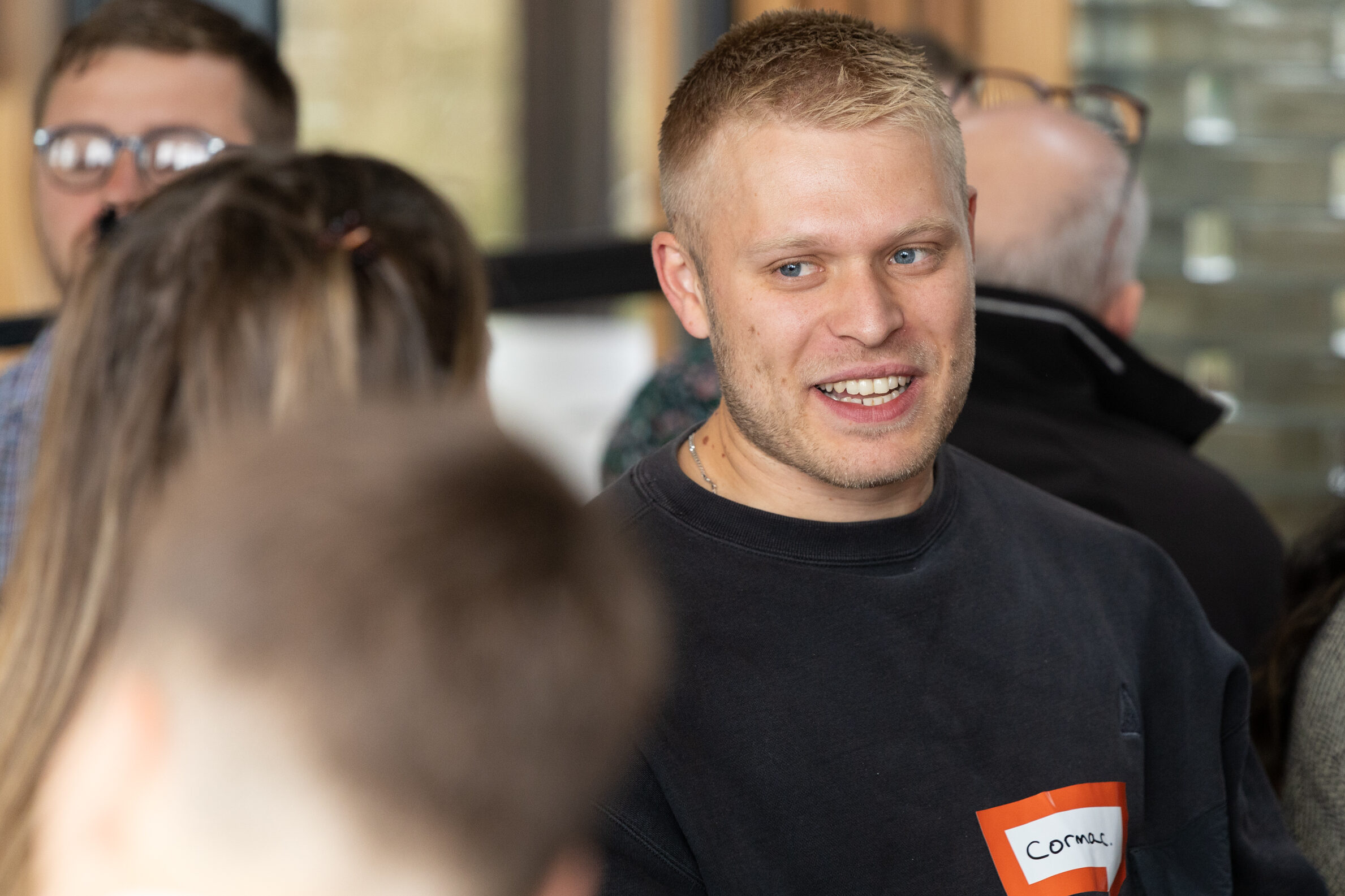
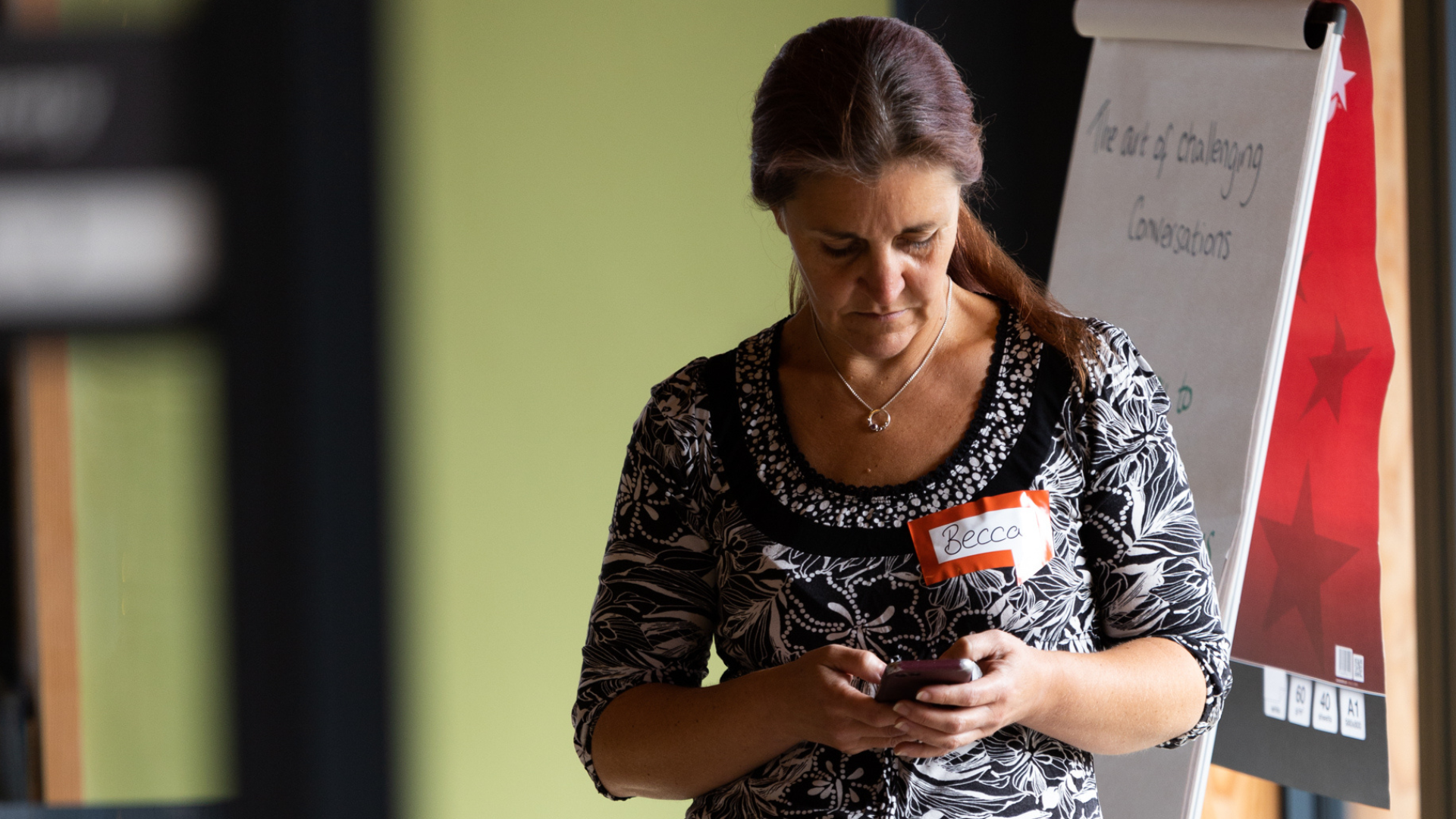
Giving feedback, learning to listen and another essential skill – time management – aren’t issues unique to Becca’s experience as a former paraplanner. They’re issues that have cropped up over the past year or so when Becca has been facilitating a small gathering of paraplanning team leaders for the Paraplanners’ Assembly.
And it’s the frequency with which they featured as a challenge for paraplanners during those team leader discussions that led us to invite Becca to develop a three-hour workshop – called ‘Personal development power-ups for paraplanners’ – that’s designed specifically to help paraplanners gain and practice those skills.
Made possible thanks to the support of Aegon, and taking place online, the workshop begins at 9:30am on 12 May 2023.
Despite being online the format will echo the interactive style of the workshop sessions that Becca ran at the Big Day Out in September 2022. (To see what paraplanners thought of those sessions, scroll down and take a look at the post-it comments pictured at the bottom of this page.)
As for the power-ups, here are three things – in Becca’s own words – that taking part in the workshop will offer you and the business you work for.
1. Give feedback confidently and listen effectively
“I often hear people say they’d like to be able to communicate better. Or I don’t feel heard. Or I don’t feel like I can get my point across very well. Or I don’t feel very well listened to. One of the things that I think people will walk away with is a way to frame feedback in a way that others can hear more easily and so listen in order to reach a better outcome that takes into account both people’s points of view.”
2. Take away practical tools to help manage your time
“Because paraplanners sit in the middle of the organisation – between clients, planners and administrators – they’re pushed and pulled in all three directions. It means they have many demands on their time and often it’s things that are important but not urgent.
Meanwhile, investing time to make things better in a way that will save everyone time – like fixing those report templates, for example – that’s the kind of investment of time that tends to slip.
I want people to walk away with a different way of thinking about time management because, for me, it all comes down to priorities: it’s not that I don’t have the time, it’s that I’m unable to prioritise my time in the right ways or in different ways. Take part and you’ll leave the session with tools to take and try out the next day – practical methods to distinguish between important and urgent tasks and how to prioritise them.”
3. Good for you at work – and good for the business you work for
Historically, I think there’s been a greater emphasis on acquisition of knowledge technically, what exams do you need to pass to be a paraplanner, how do you write better reports – that that sort of thing. Or, for administrators, go and see such-and-such a brand for a day to find out more about their platform.
But the more you and the business you work for looks after the whole person, the better they’re going to perform at work. When we learn to listen to each other better, then we can begin to talk in ways that other people will understand. For instance, as a paraplanner, if you talk about the outcomes for a client, and wanting to give a client a great service, a planner is far more likely to listen to you than if you come from a ‘well-the-file-check-says-that-the-file-needs-to-look-like-this’.
As an employer, if you’re giving people to chance to learn this stuff, giving them the space to learn, and investing time and money for this sort of training. you’re affecting the lives of the people who are working for you in a much bigger way than just what they can do for your clients.
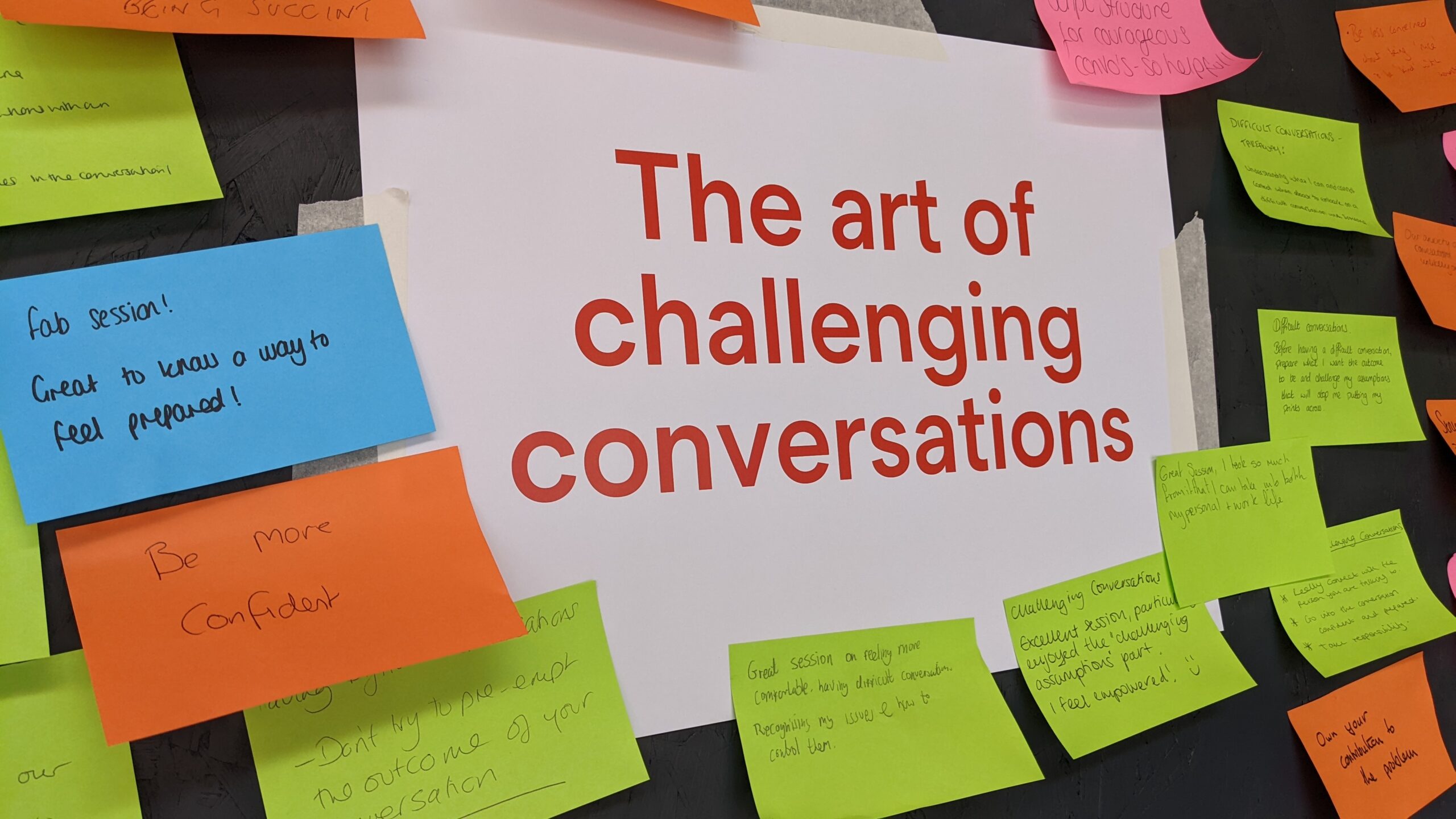
If you liked that, here are two things you can do right now which we think you might like too
Take part in the power-up workshop
If you’d like to join Becca at the Personal development power-ups for paraplanners – a 3-hour online workshop starting at 9:30am on 12 May 2023 – just tap the link.
» Book now
Meet up with other team leaders
Team leader? Then you can join our sessions too. But there’s a waiting list. To join it, tap the link and post a message at The Big Tent thread.
» Visit the thread
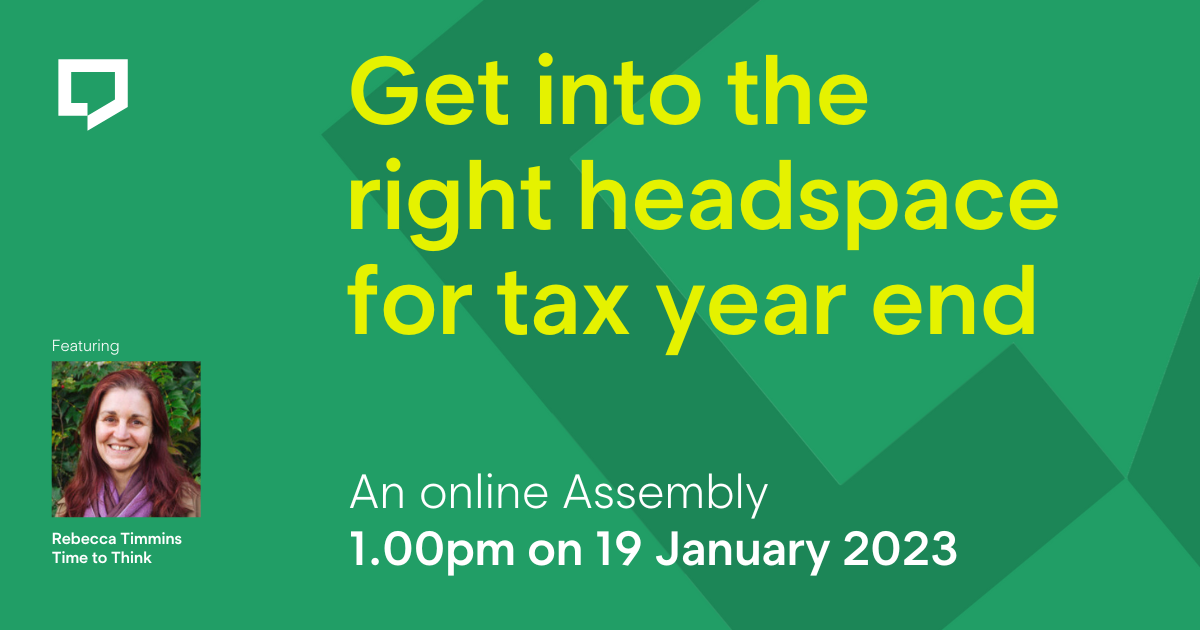
Tax year end. ALREADY?
Yes. But it wasn’t just any old hour’s worth of tax chat (attractive though we know that would be).
No. This is all about getting in the RIGHT MINDSET for 2023’s tax year end deadline.
(Like a HIIT workout. But without the HIIT bit. Or the workout.)
What it involved was coach and facilitator, Becca Timmins, being joined by Kez Condy and Jo Parkes from Navigatus, Zoe Hitchcock from Crowe UK and Emery Little’s Satu Flynn to discuss how they were getting in the zone for this year’s tax deadline.
The audience were invited to tune in as the group answer three questions:
- What went well at tax year end last year?
- What was a challenge?
- What will you take with you into this tax year end?
By sharing their insights and experiences from last year – combined with your own contributions in the chat – everyone taking part – on screen or off it – gained ideas, tips and techniques that could prove invaluable in countdown to the tax year deadline.
Far from being ‘soft’ skills, the ability to listen more effectively, give and receive feedback more confidently, and manage your time more productively are vital personal development skills so you can succeed in your paraplanning career.
But how often do you find time to discover, practice and apply new tools and approaches to fine-tune those skills? Plus do that alongside other paraplanners in the same boat as you?
If that sounds familiar, then this is the event for you. Because we asked coach and facilitator, Becca Timmins, to design a workshop exclusively for paraplanners.
Drawing on a decade of insights provided by Assembly participants, Becca has created the power-up you need to grow your confidence and command of these crucial skills – in just three hours.
This workshop has been made possible thanks to the kind support of our friends at Aegon UK.
What you’ll learn
You’ll learn to lean in to listening
Ever feel the need to fix everyone’s problems for them? Or perhaps you feel pressure to come up with solutions when people share their thoughts and feelings with you?
Learning a new way to think about listening can really help us let go of needing to have all of the answers. Plus, it makes for solutions that are more effective and better thought through. We’ll use our time to discover a refreshing approach to listening.
You’ll feel more confident about feedback
Do you ever feel unsure about how best to give feedback? Perhaps you struggle to get your point across and wish you could articulate yourself more clearly? Maybe receiving feedback makes you squirm?
We’re often not taught how to give effective feedback and so we struggle to know how to do it well. What’s more, bad experiences can put us off trying. So we’ll spend some time learning tools that can help us – and think about how we can get out of our own way.
You’ll gain a new perspective on time
Does it feel like there aren’t enough hours in the day? Maybe you feel like you never seem to have control over how you spend your time?
There are so many tools and hacks out there to try and make us feel we can do more in less time. Perhaps it’s time to think about it a bit differently? That’s why we will set some valuable time aside to explore the way we approach time managing.
About workshop facilitator, Becca Timmins
Our workshop will be led by Becca Timmins.
Becca’s workshops give you lots of room to reflect on things both individually and in conversation with other paraplanners.
Her style makes for an energising and enriching learning experience. In fact, you can see for yourself because we’ve added a few shots from Becca’s sessions at this year’s Big Day Out.
Coach and facilitator Becca has not only worked as a paraplanner in the past but – these days – is director of operations at financial planning practice Emery Little.
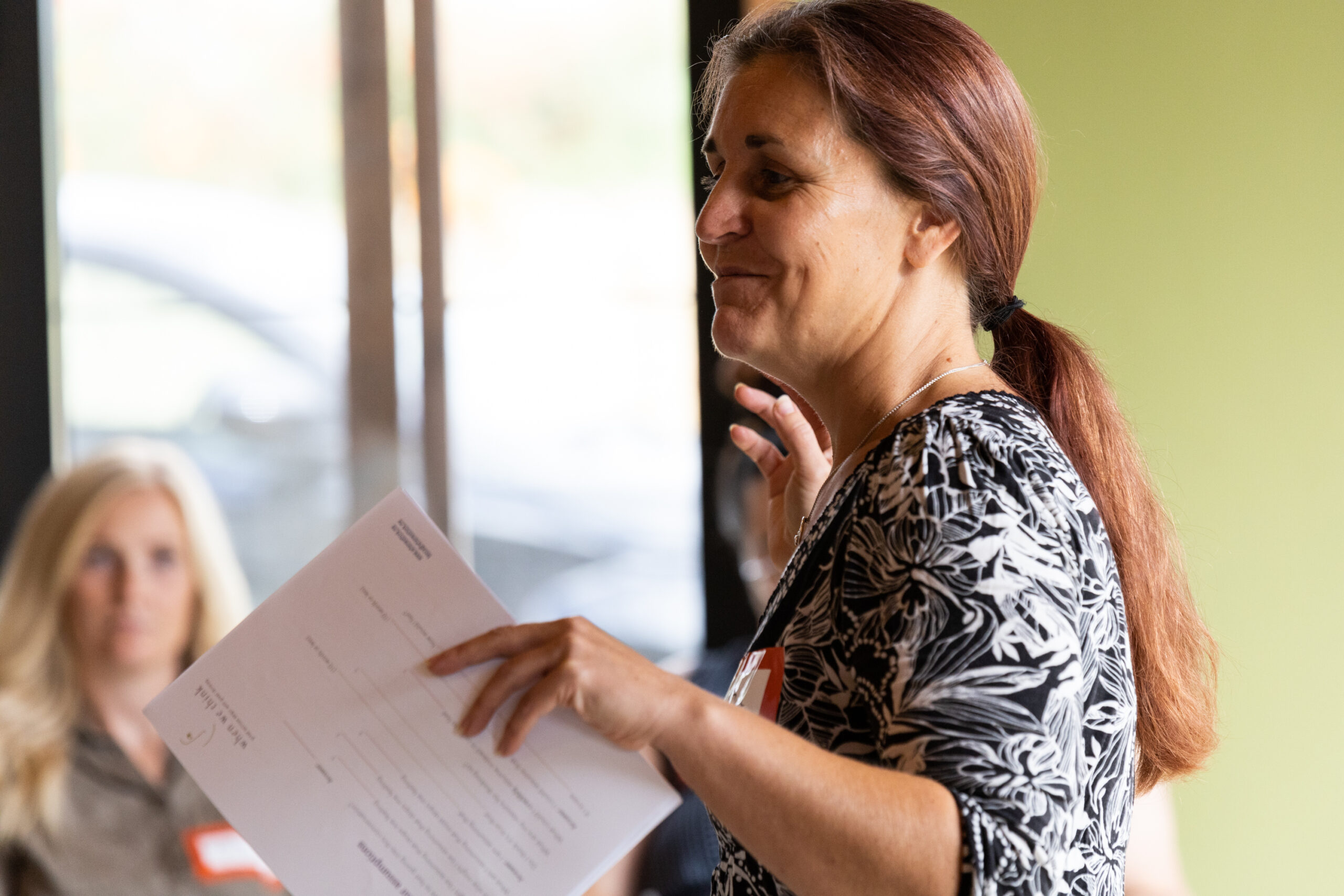

How to join the event
The event will be taking place online using Zoom. Once you’ve bought your ticket, you’ll receive the Zoom link and details of how to join the event on 12 May 2023.
Price
£25 per participant. This includes VAT and Eventbrite booking fees.
How to book
Just tap the Buy tickets button and book online now.
For the first time in three years paraplanners from all over the country were able to gather for real for the Paraplanners Assembly’s Big Day Out at FarmED near Chipping Norton in Oxfordshire on 15 September 2022.
Learning objectives
We opted for a blend of small group sessions – which we called Crop Rotations – and all-together sessions.
Crop rotations: Morning
For the pre-lunch sessions, we split the Assembly into three groups: Barley, Oats and Wheat.
Participants were assigned to a group and each group rotated around the three topic sessions. Conversations in each topic session were facilitated by hosts and experts. Each session lasted for 45 minutes. The topic session for rotations 1, 2 and 3 were:
What will consumer duty mean to you?
Experts: the lang cat’s Mike Barrett and Mel Holman from CATS.
The art of challenging conversations
Expert: Becca Timmins from Time to Think and Emery Little led a session on challenging conversations.
Pep up your paraplanning processes
Experts: LIFT Financial’s Jonny Stubbs and Chris Baigent-Reed from Jigsaw Tree.
After lunch, participants were assigned to a NEW group: Apples, Cherries, Pears or Plums.
That’s because we combined two groups for the session on report writing but – by the miracle of organisation – ensured each group gets a technical Q&A all to itself. So the topics for rotations 4 and 5 were:
Technical Q&A
Panellists: Les Cameron and Neil MacLeod from M&G Wealth, and Transact’s Brian Radbone and Barnett Waddingham’s James Jones-Tinsley.
Three things that get in the way of clear, compliant and client-friendly report writing
Experts: Melissa Kidd of Motem with Mel Holman from CATS.
Broken link or duff information?
If something’s not quite right on this page, please tell us what you spotted now at our bug list.
Our friends at Aegon are doing a lot of work around financial wellbeing. Dr Tom Mathar, Centre for Behavioural Research, Aegon UK and one of the experts on this online assembly, would like to share some thoughts with you.
Life is unpredictable and changes constantly. But what remains is our need for financial security and peace of mind. And with the rise of DIY platforms and robo-advice breaking through an industry focusing on three things – alpha, asset allocation and charges – the value of advice needs to go further. That’s where financial wellbeing can play its part.
So what is financial wellbeing?
Financial wellbeing is how people feel about the control they have over their financial future – and their relationship with money. It’s about focusing on the things that make their life more enjoyable and meaningful – both now and in the future.
What we focus our mind on matters
Everyone’s idea of financial wellbeing is different – from having enough money to live comfortably, making large purchases (planned or unexpected), to being able to repay outstanding debts, as well as being on track with savings and pensions to cover later life.
But you can easily break financial wellbeing down into two things for your clients:
- Financial resilience – do they have enough to pay for what they need now and in the future.
- Focus – are they paying attention to what really makes them happy.
Financial wellbeing building blocks
We found that money building blocks and mindset building blocks are necessary to build financial wellbeing.
As part of our latest research[1] we asked people about their financial resilience and their ‘mindset’ – how they think about money, and we created a scale to help clients picture it:
5 money building blocks
- Income
- Rainy day fund
- Manageable debt
- Smart long-term savings
- Valuables that make us feel secure long term, like property
5 mindset building blocks
- Knowledge of what makes us happy
- A solid picture of our future self
- Savvy social comparisons
- A long-term plan
- Strong nerves in a crisis (resilience)
But it’s also about balance. Even if your clients have their money building blocks nailed, they won’t achieve optimal levels of financial wellbeing without a well-considered and focused mindset too.
What was clear from our research was that mindset scores were lower than money scores, and the mindset scores didn’t improve at the same pace as peoples’ incomes were.
Common mindset problems
Lower mindset scores were a result of several factors including:
- 38% of people have only a vague idea of where they want to be (financially, socially, physically etc) in 10 years’ time vs 29% with a specific idea.
- 28% have only a vague sense of what gives them joy or purpose which are key elements of happiness.
- 87% of people don’t have a financial plan to achieve long-term goals.
- 16% of people frequently compare their finances to the finances of those better off than them with younger people far more likely to do so.
- Only 17% of people were able to answer at least four out of five basic financial literacy questions correctly.
Five tips to adjust your client’s mindset and improve their financial wellbeing
Use the tips below with your clients to reframe your conversations and check-ins and encourage them to think about what gives them joy and purpose.
- Ask them to put happiness first – alert them to be conscious of the things that give them sustained happiness – be that joy or purpose. And that they’re spending time, energy and money on those things with their future happiness in mind.
- Savvy social comparisons – if they’re making social comparisons, encourage them to be healthy and realistic, instead of them comparing to people whose financial lives appear better. Or even suggest they use their past self as a comparison to measure how far they’ve come.
- Help them picture their future self and lifestyle – encourage your clients to spend time regularly visualising their future self and what they might be doing. By paying attention to the life they want to live, pension and investment goals to achieve that lifestyle, can keep them on track. It’s also important for your clients to think about what protection they have in place if something unexpected derails them.
- Make a long-term plan together and write it down – people who write out a financial plan save more regularly and do better financially.
- Reassure them to hold their nerve in a crisis – if your clients are tempted to change their long-term investments, get them to remember why they started saving so they don’t panic and do anything they might regret.
Get started
We’re committed to working with you to help identify advice opportunities and support your clients throughout their lifetime.
To read our research in full and share with your clients, download our digital flipbook – How you can improve your financial wellbeing
We’ve also created a summary guide of the research – Our insight into the nation’s financial wellbeing – designed especially for intermediaries, paraplanners and employers.
For other financial wellbeing support and research, visit aegon.co.uk/financialwellbeing
[1] Research conducted in August/September 2020, based on 10,466 nationally representative UK residents


